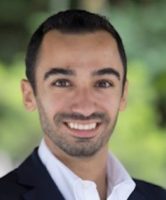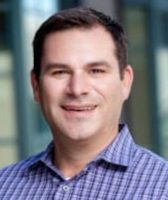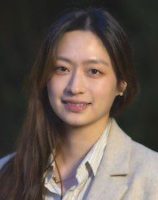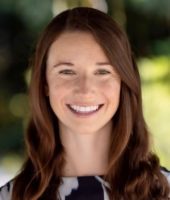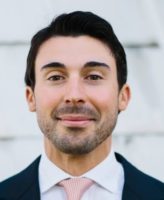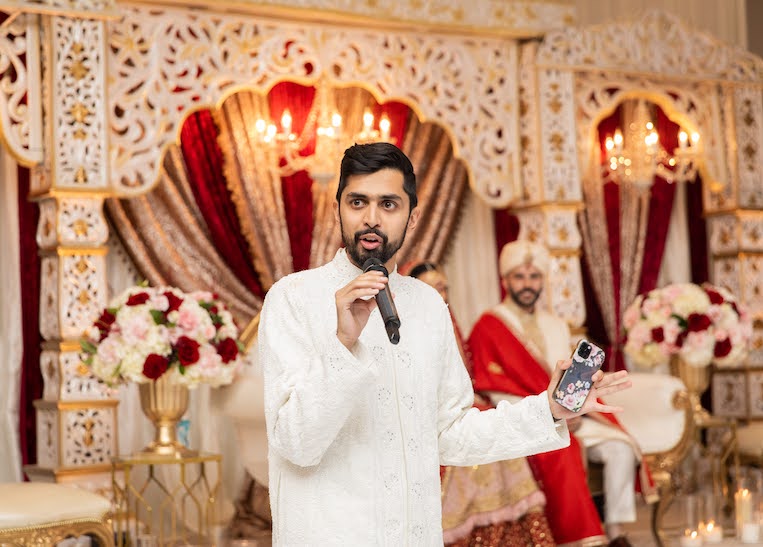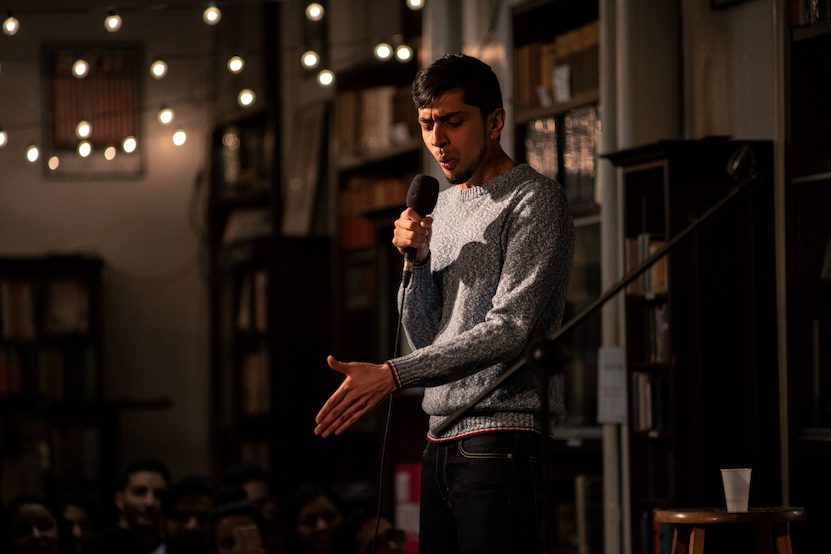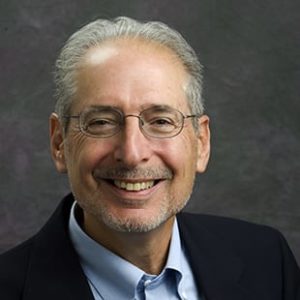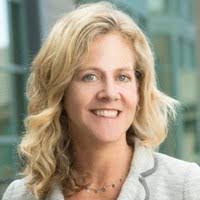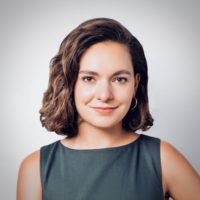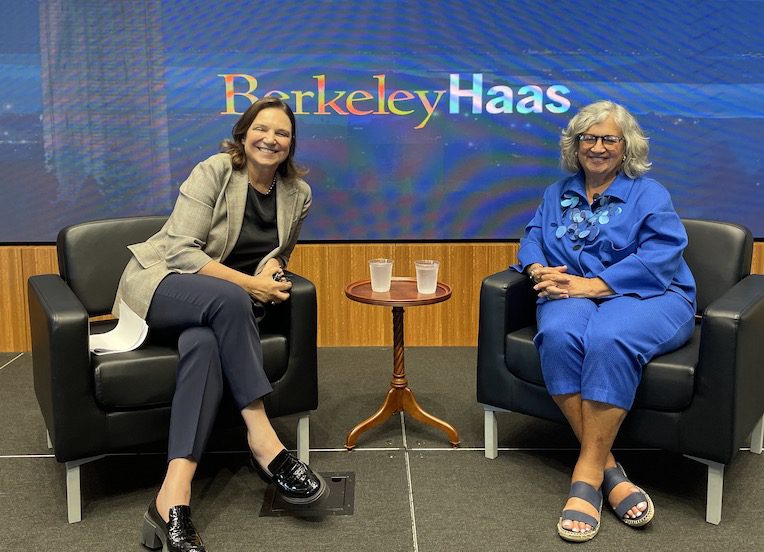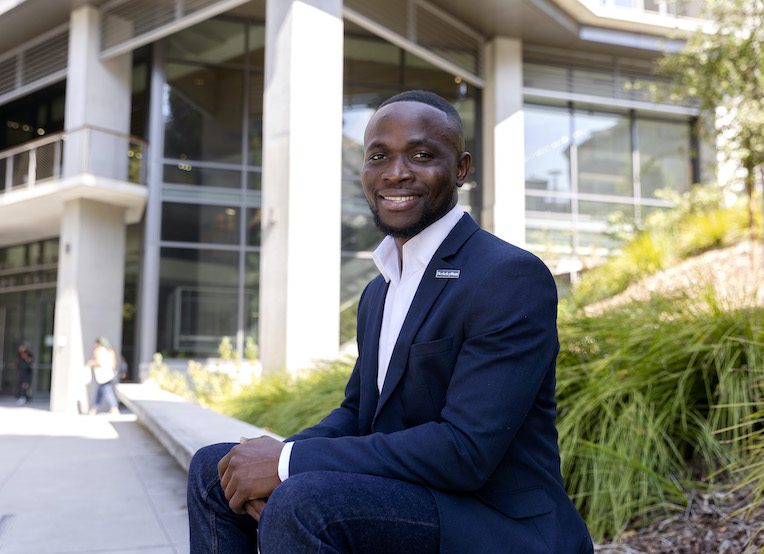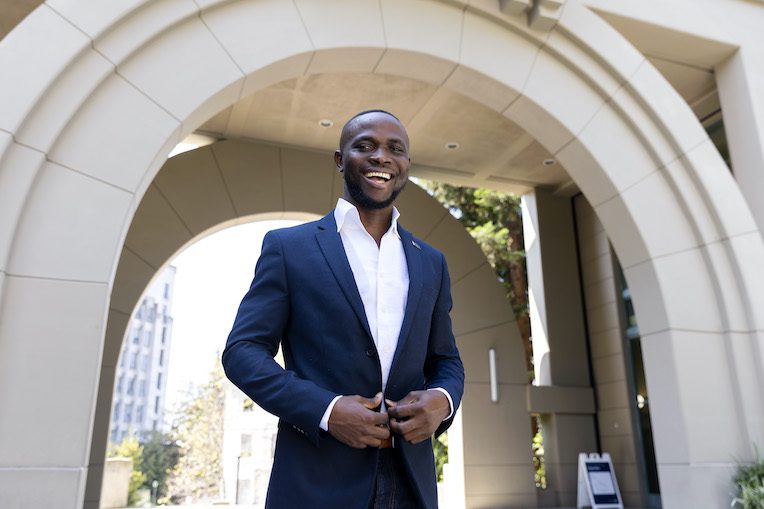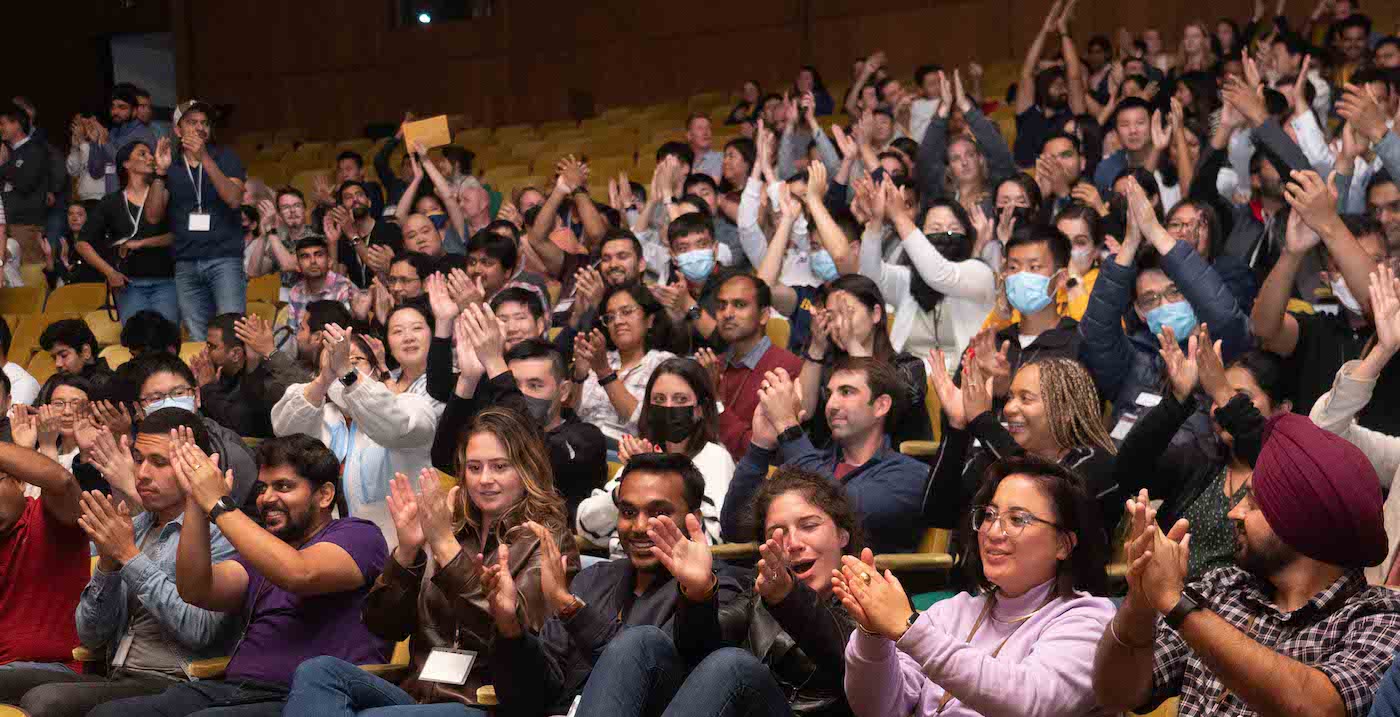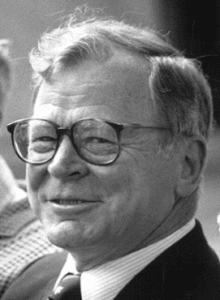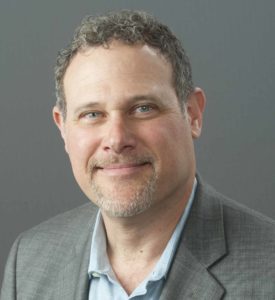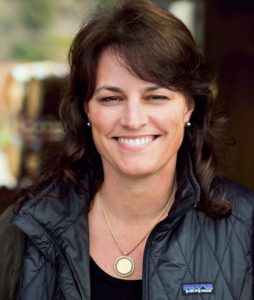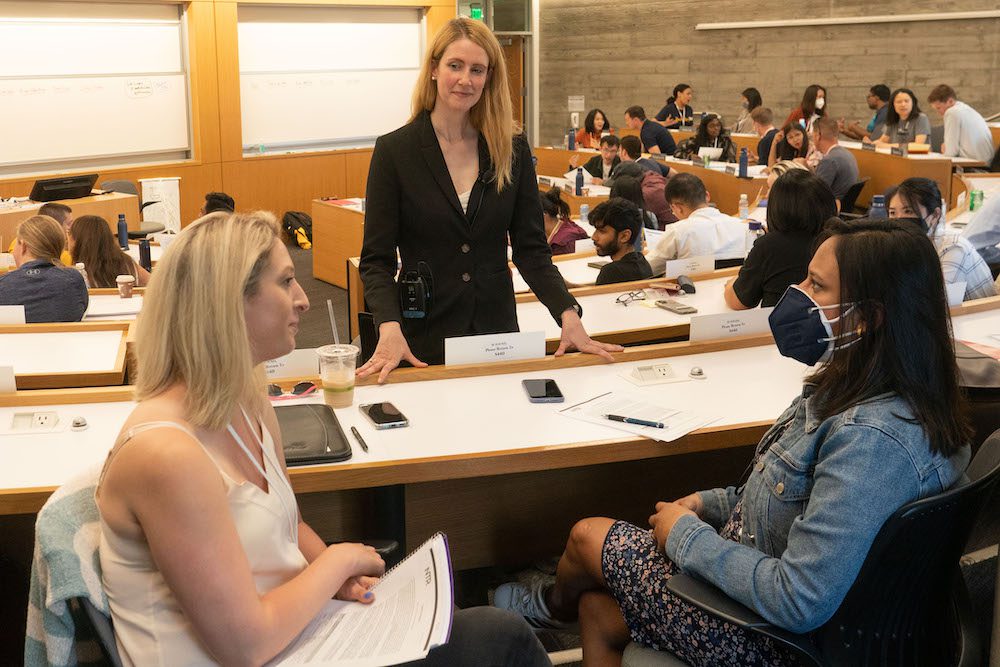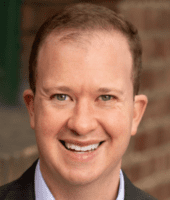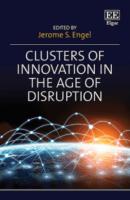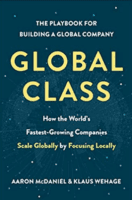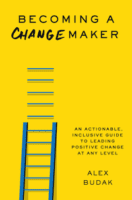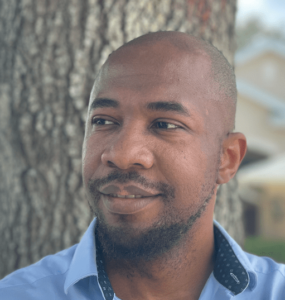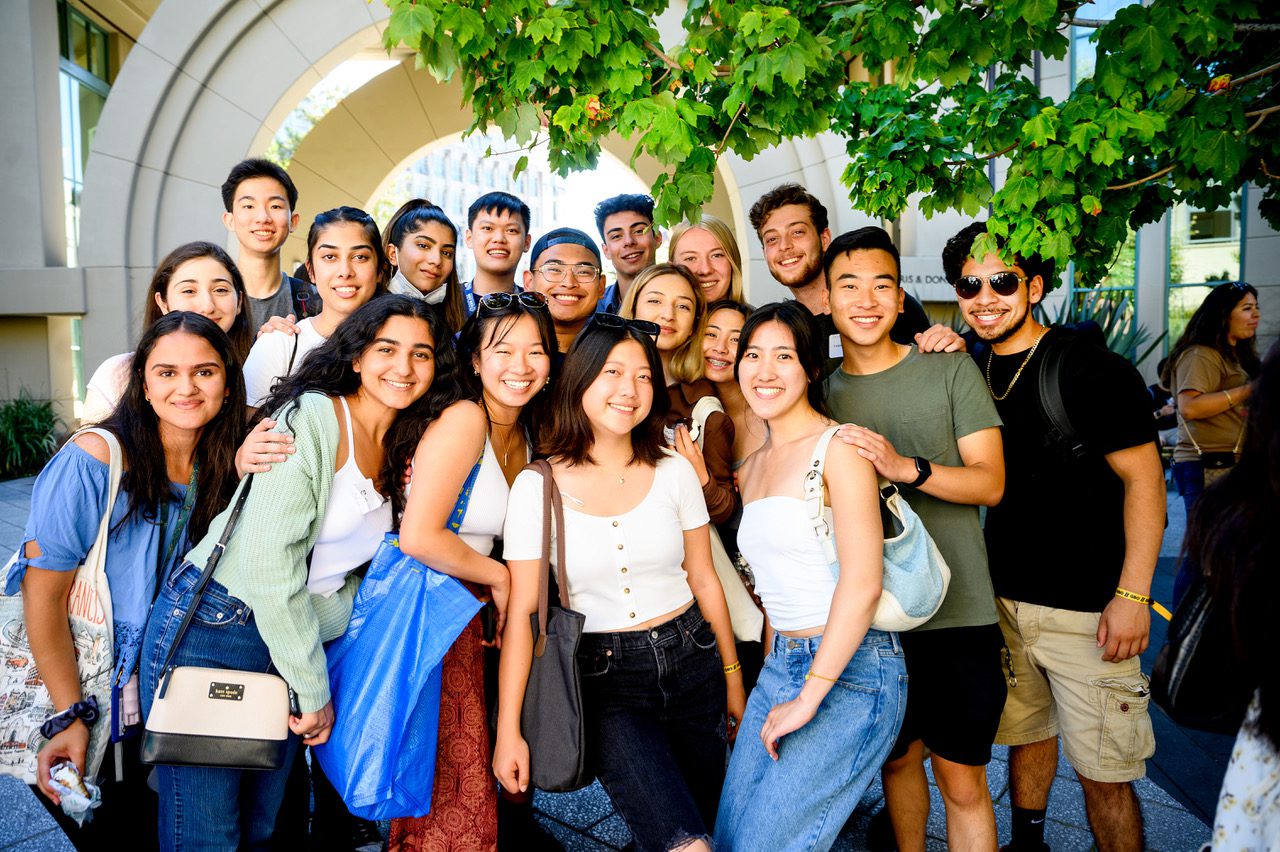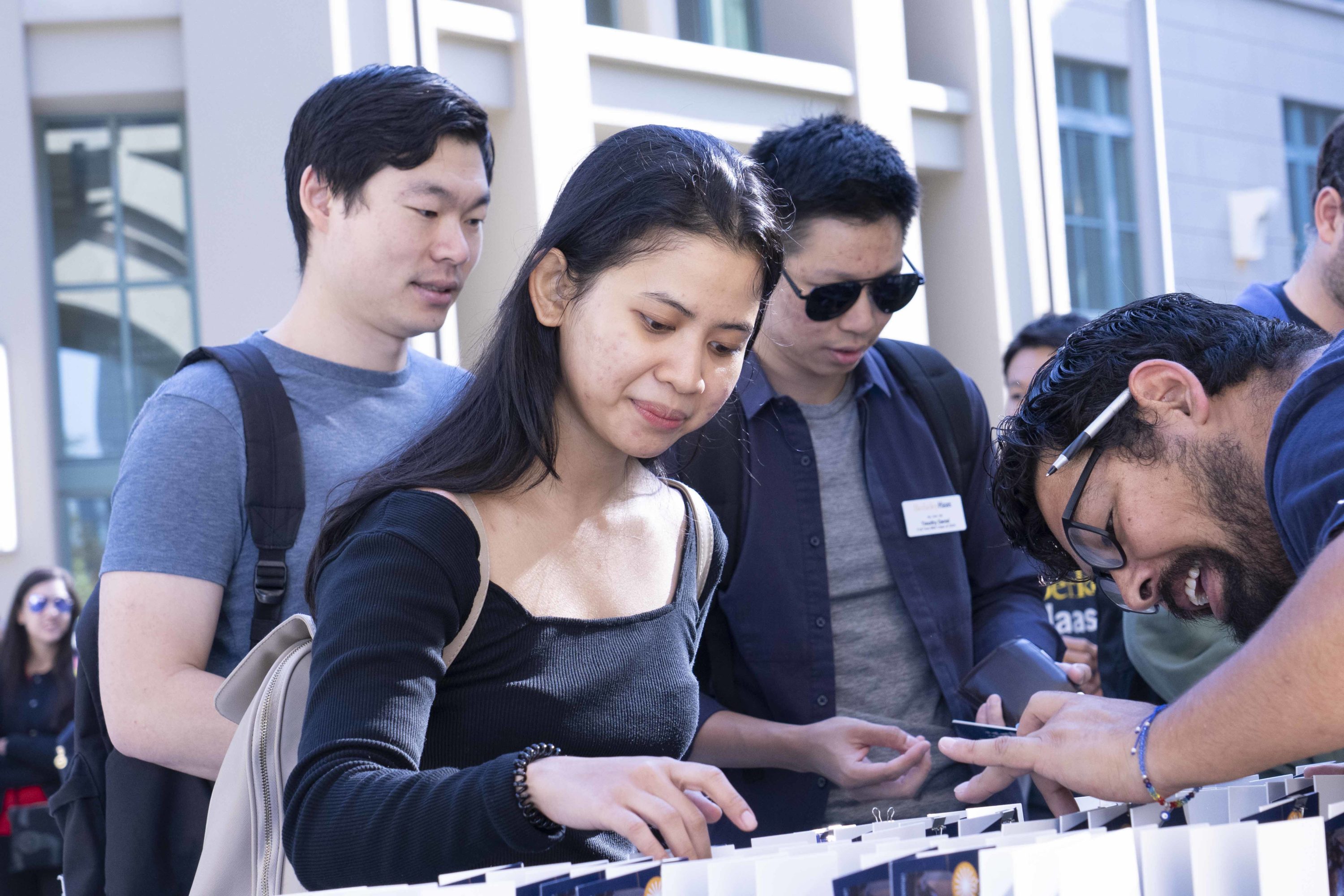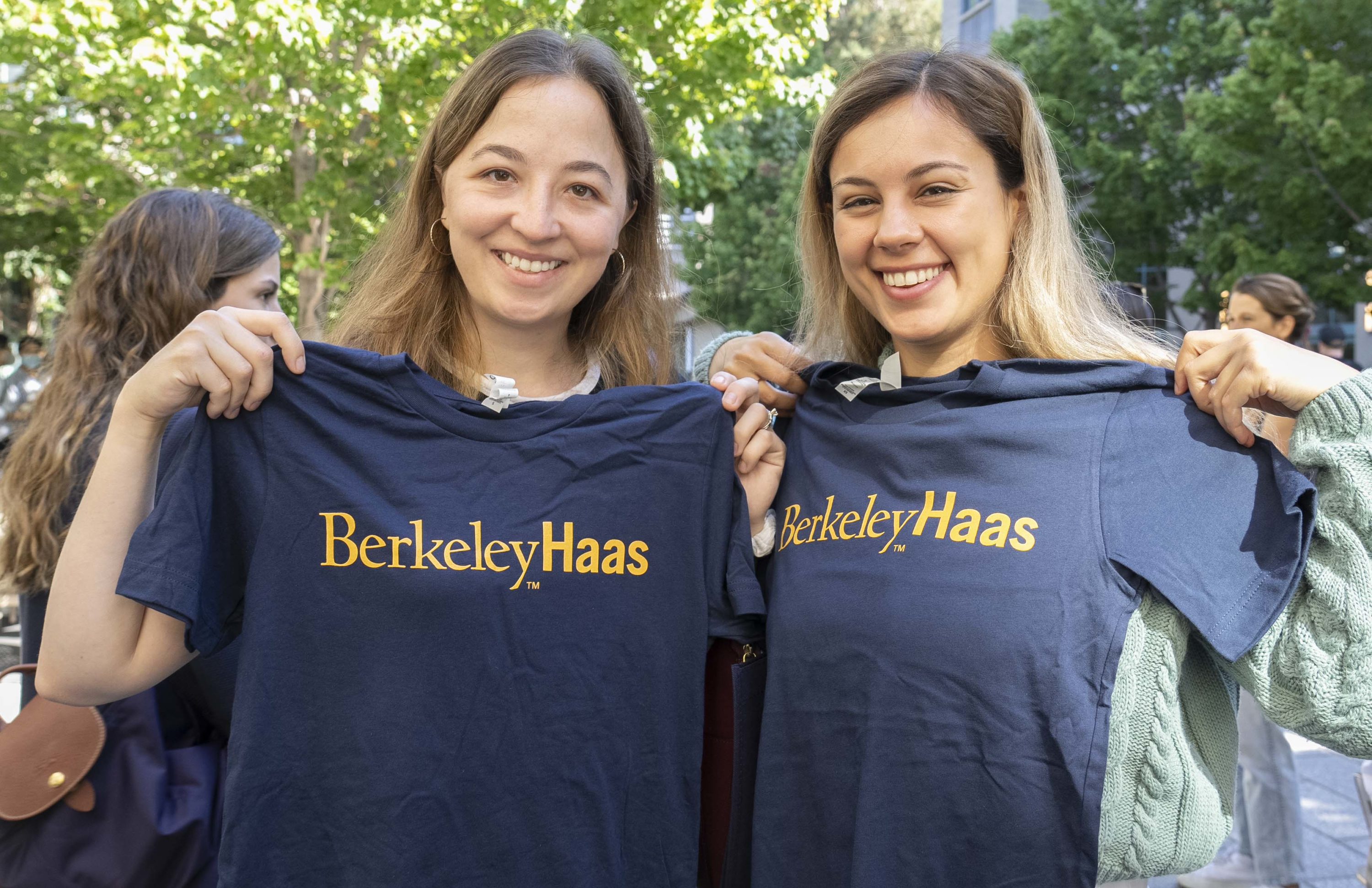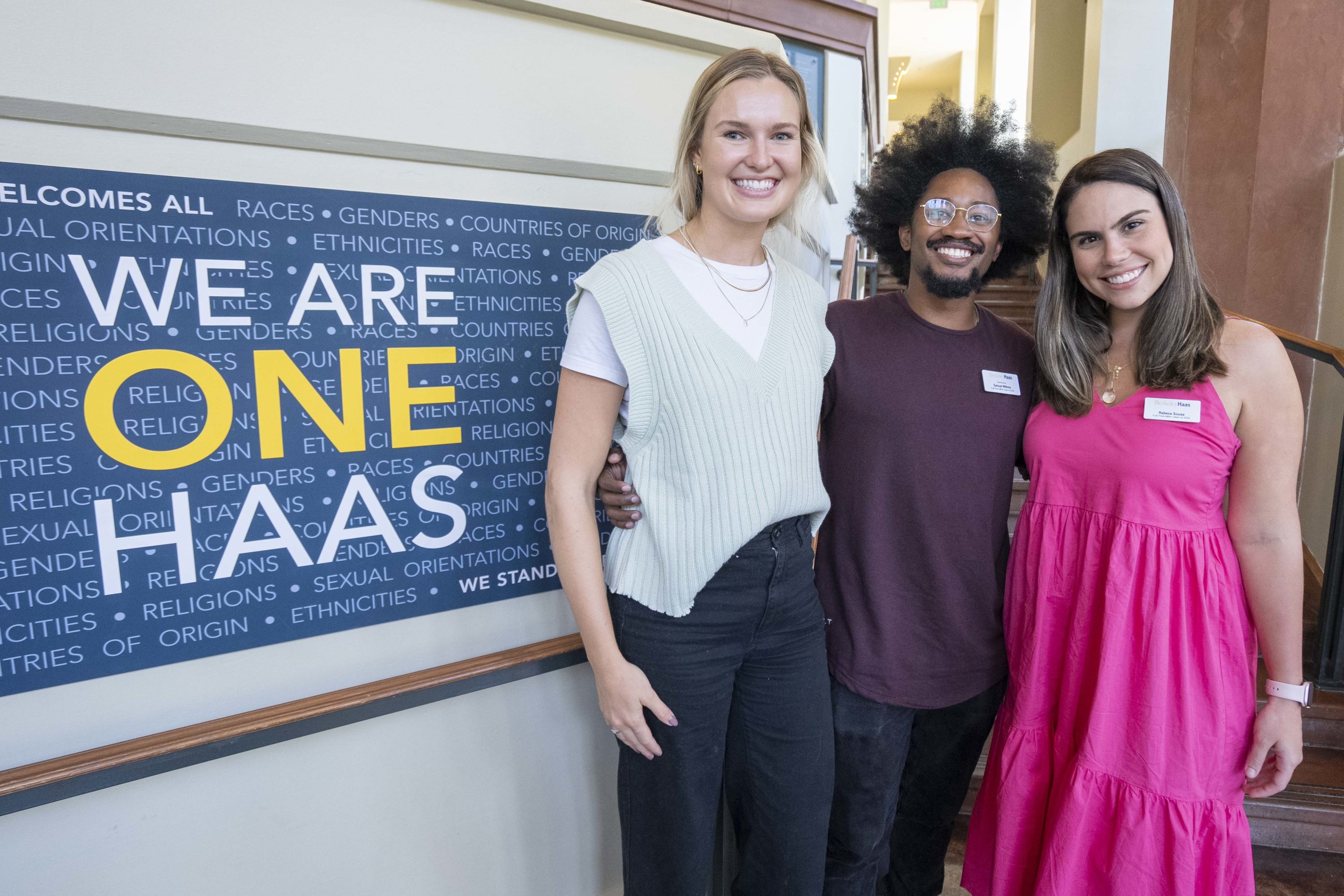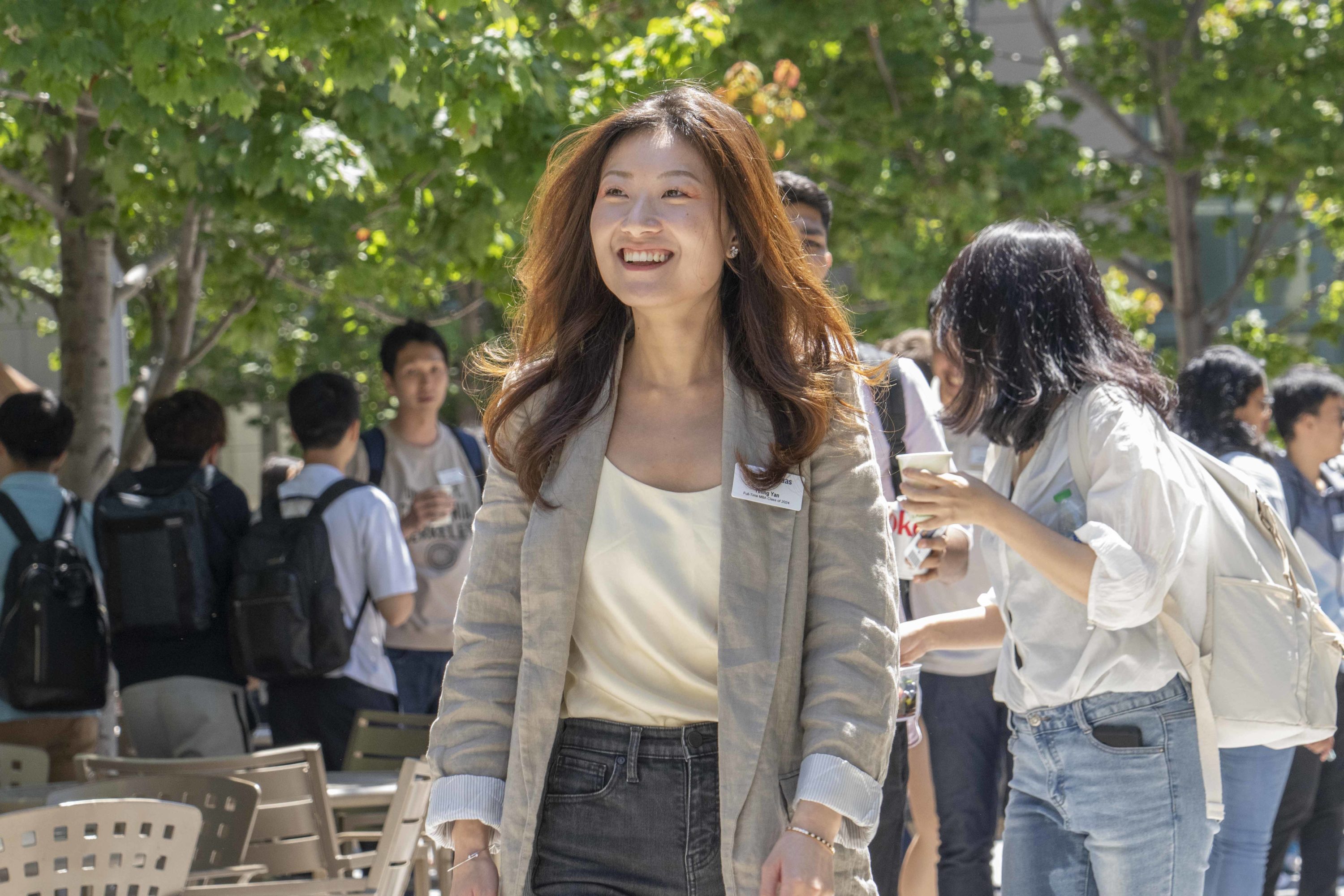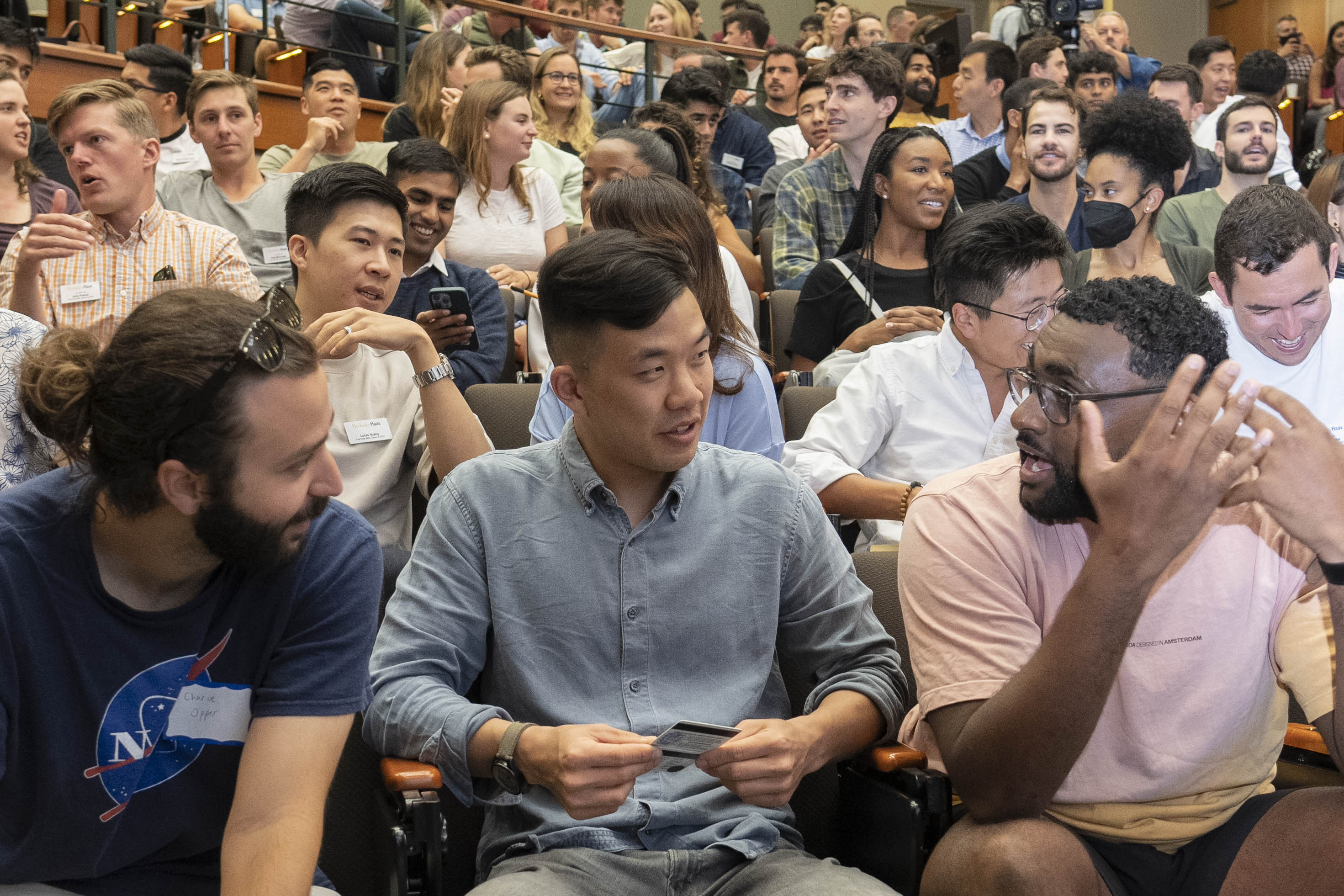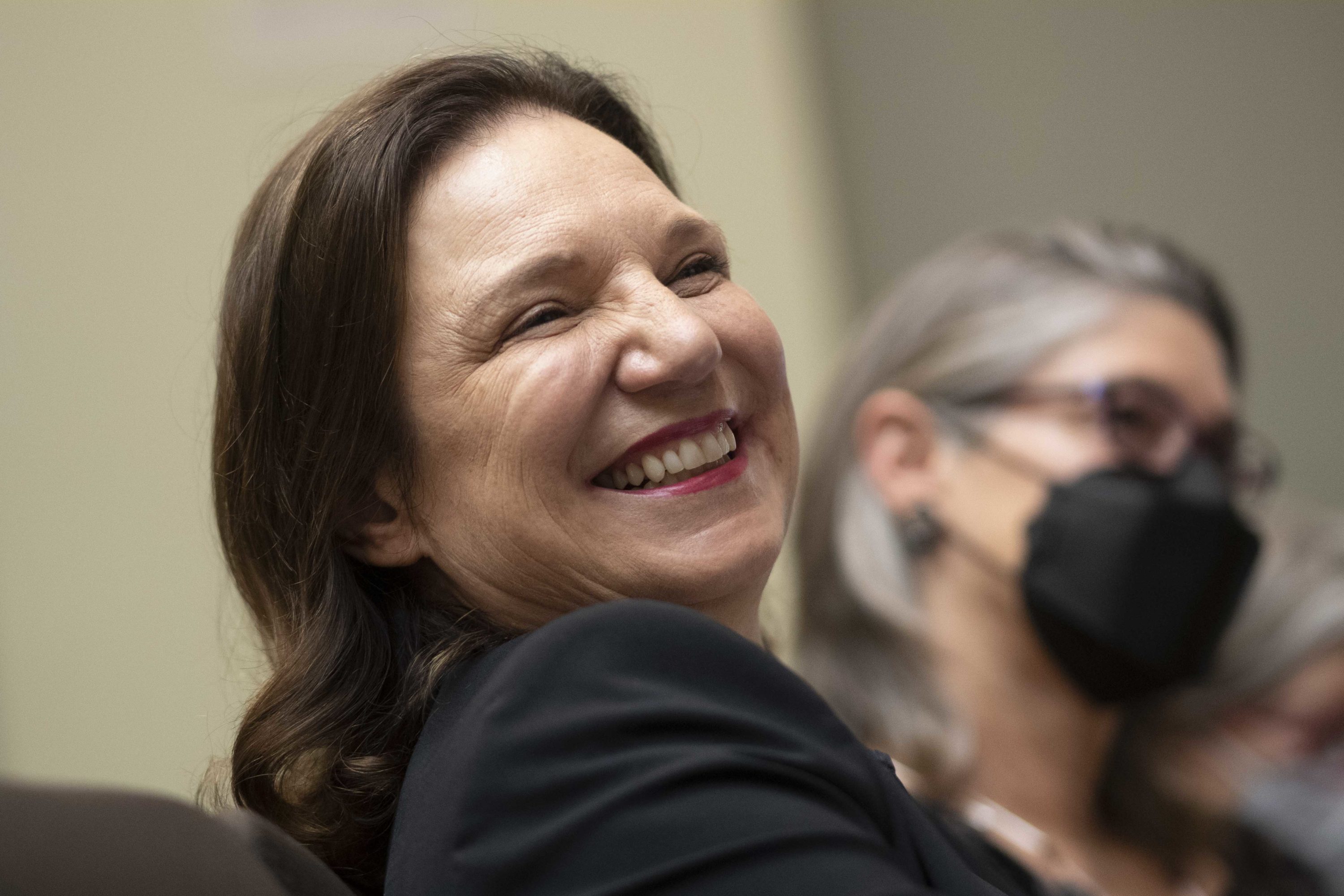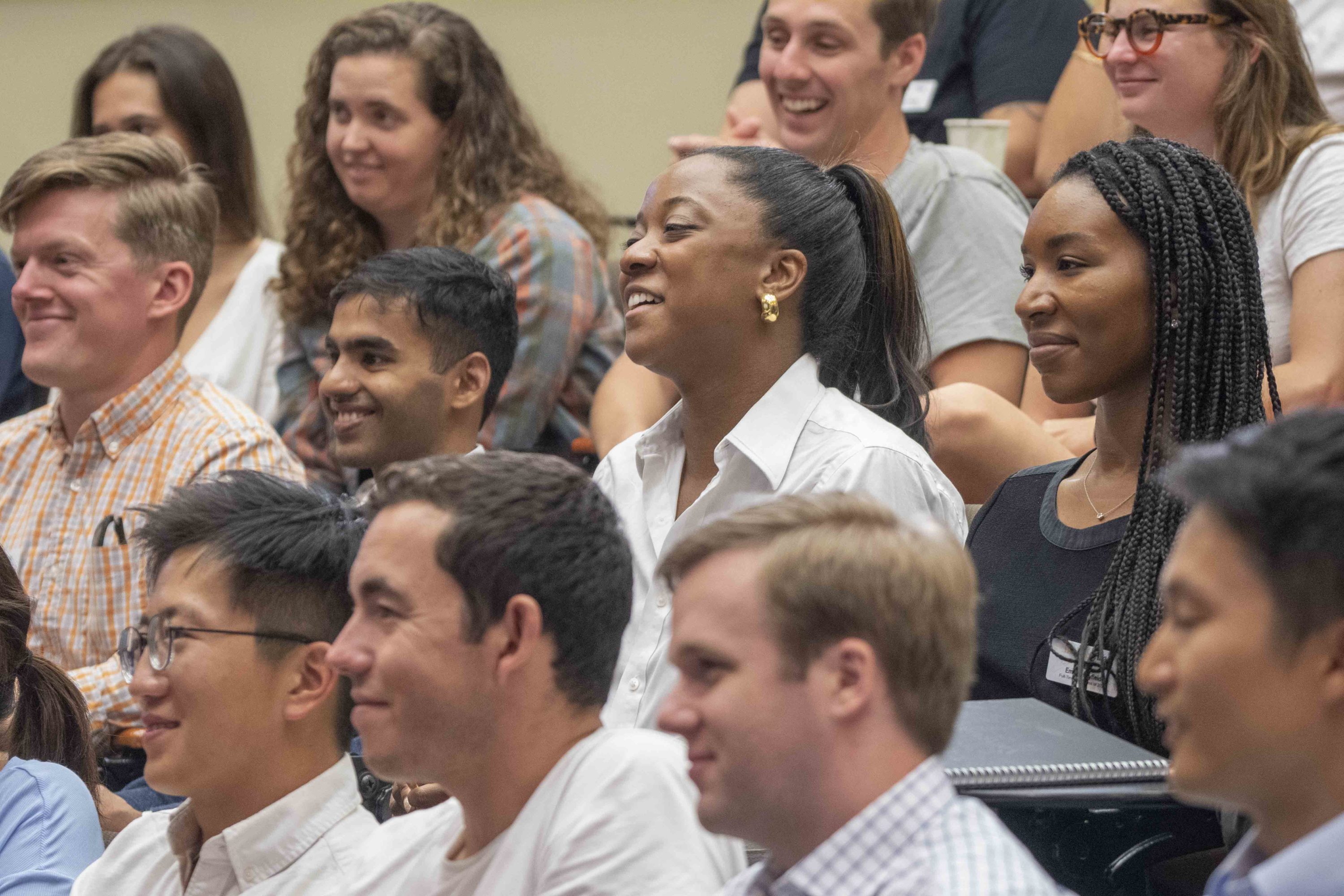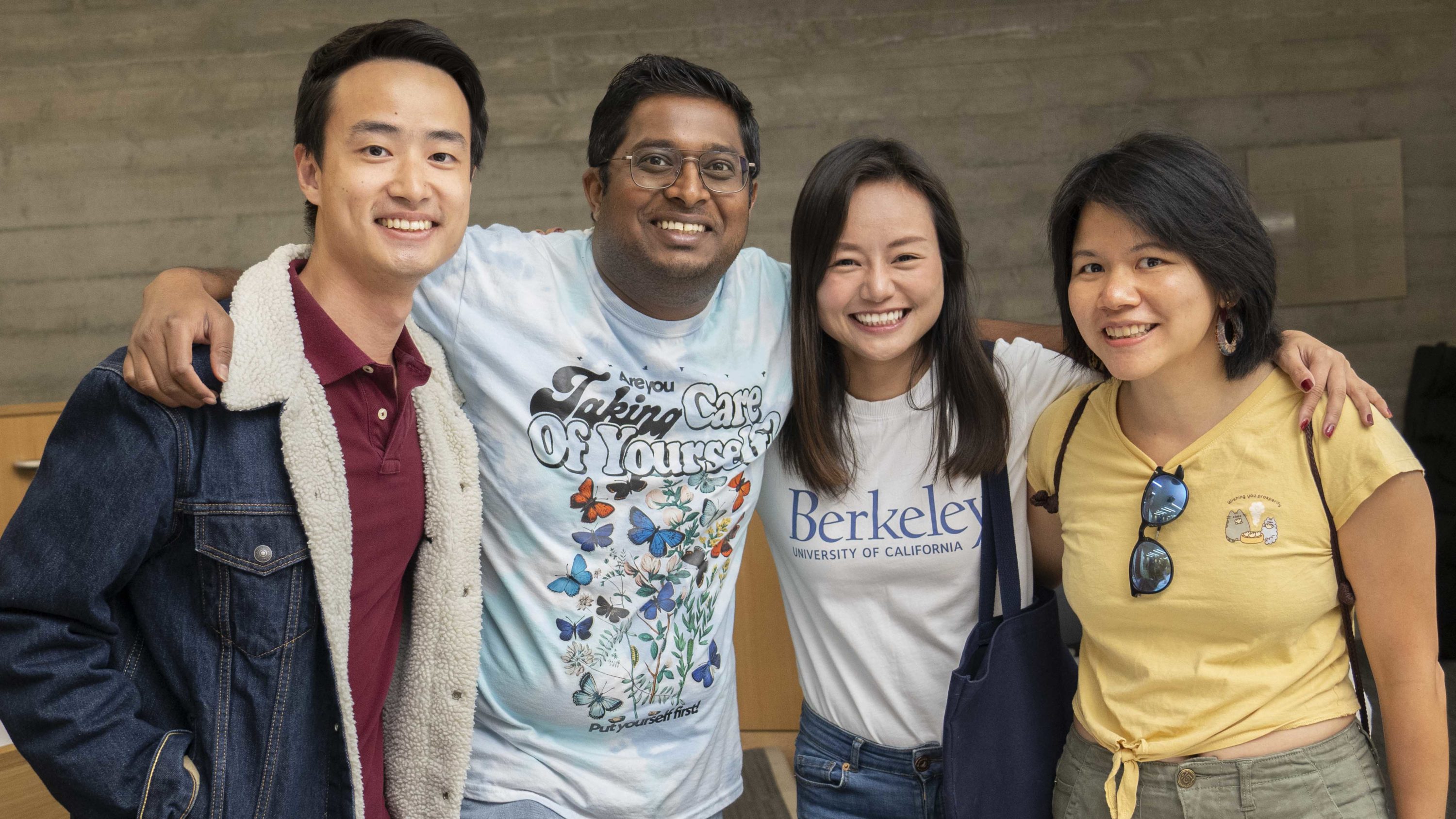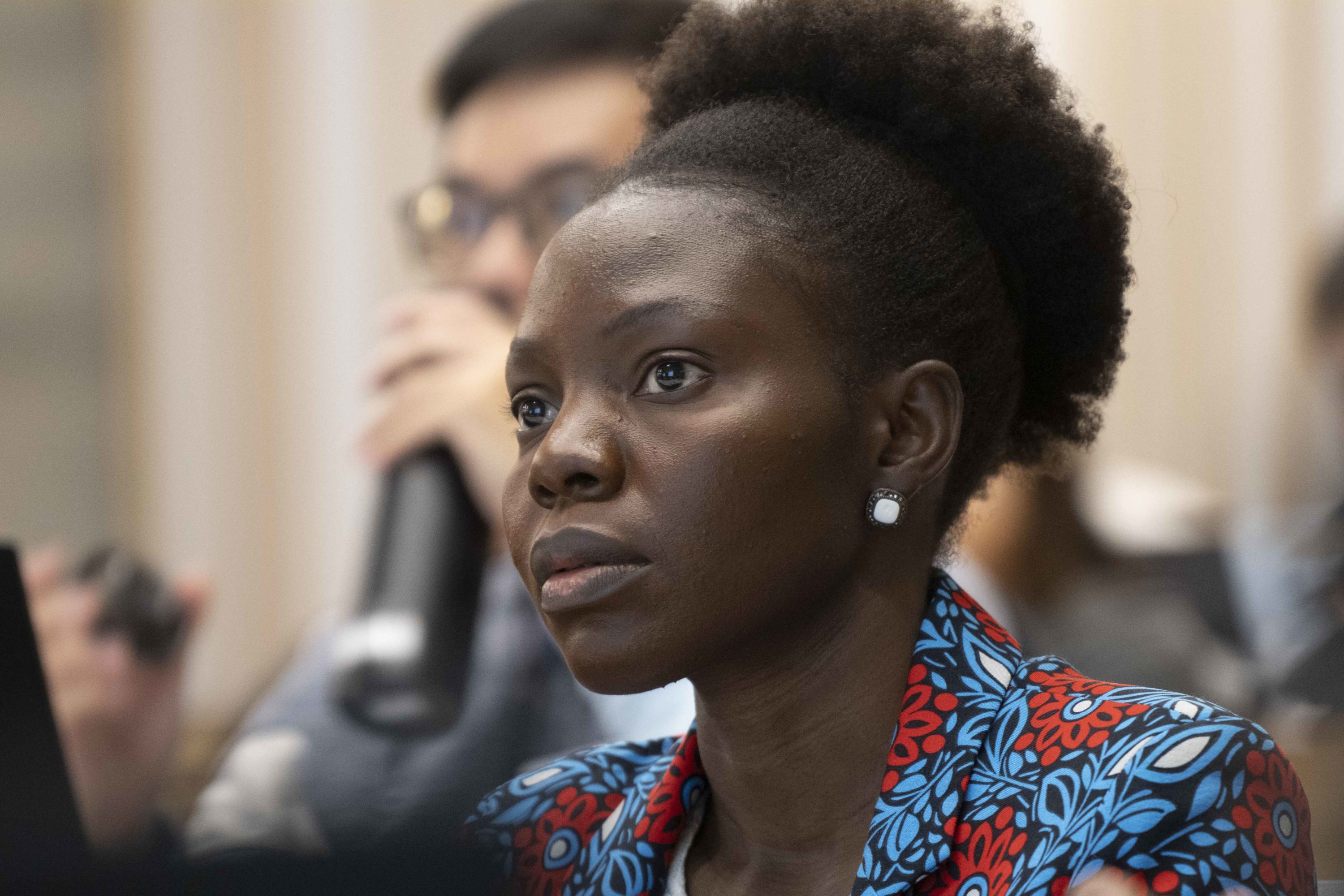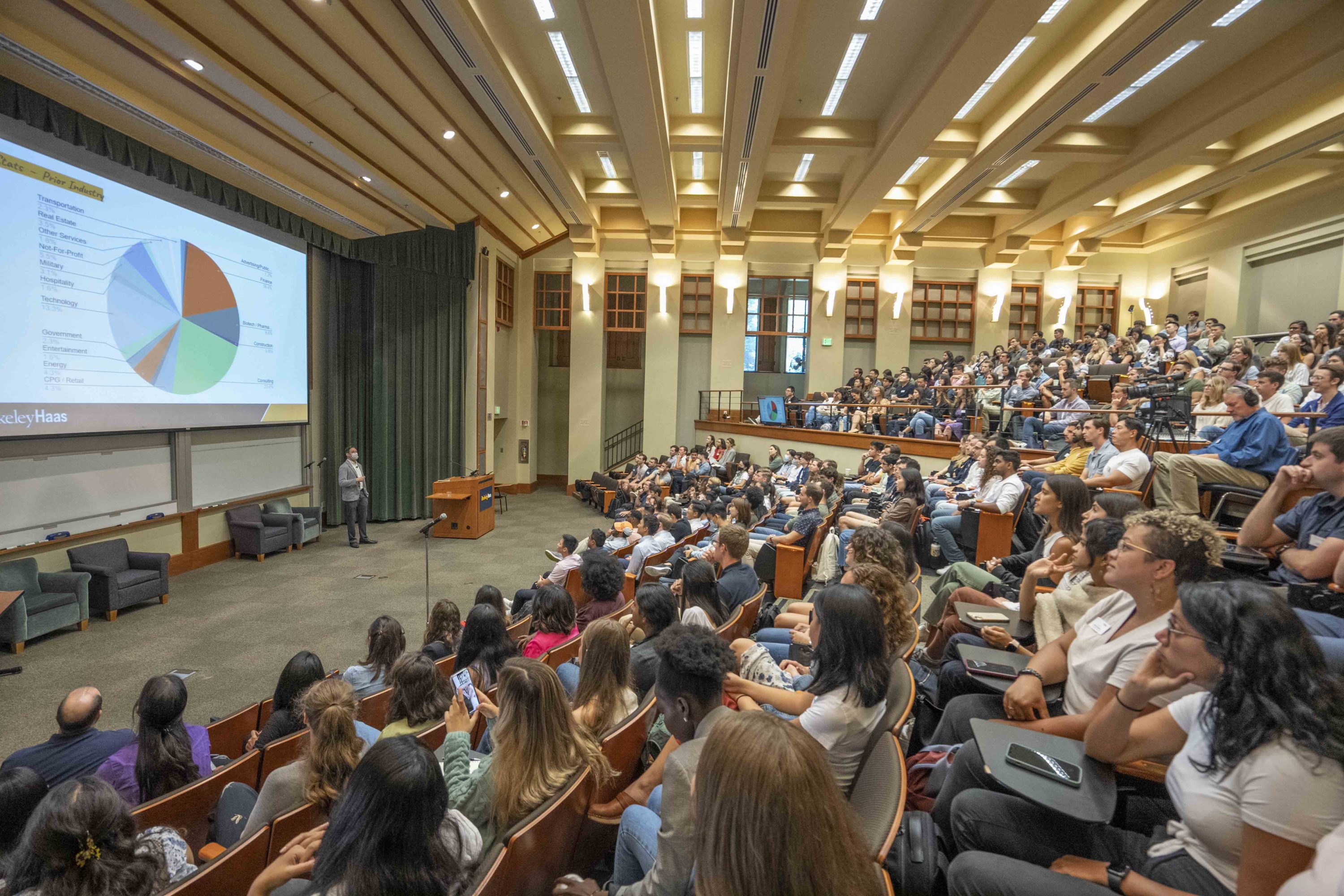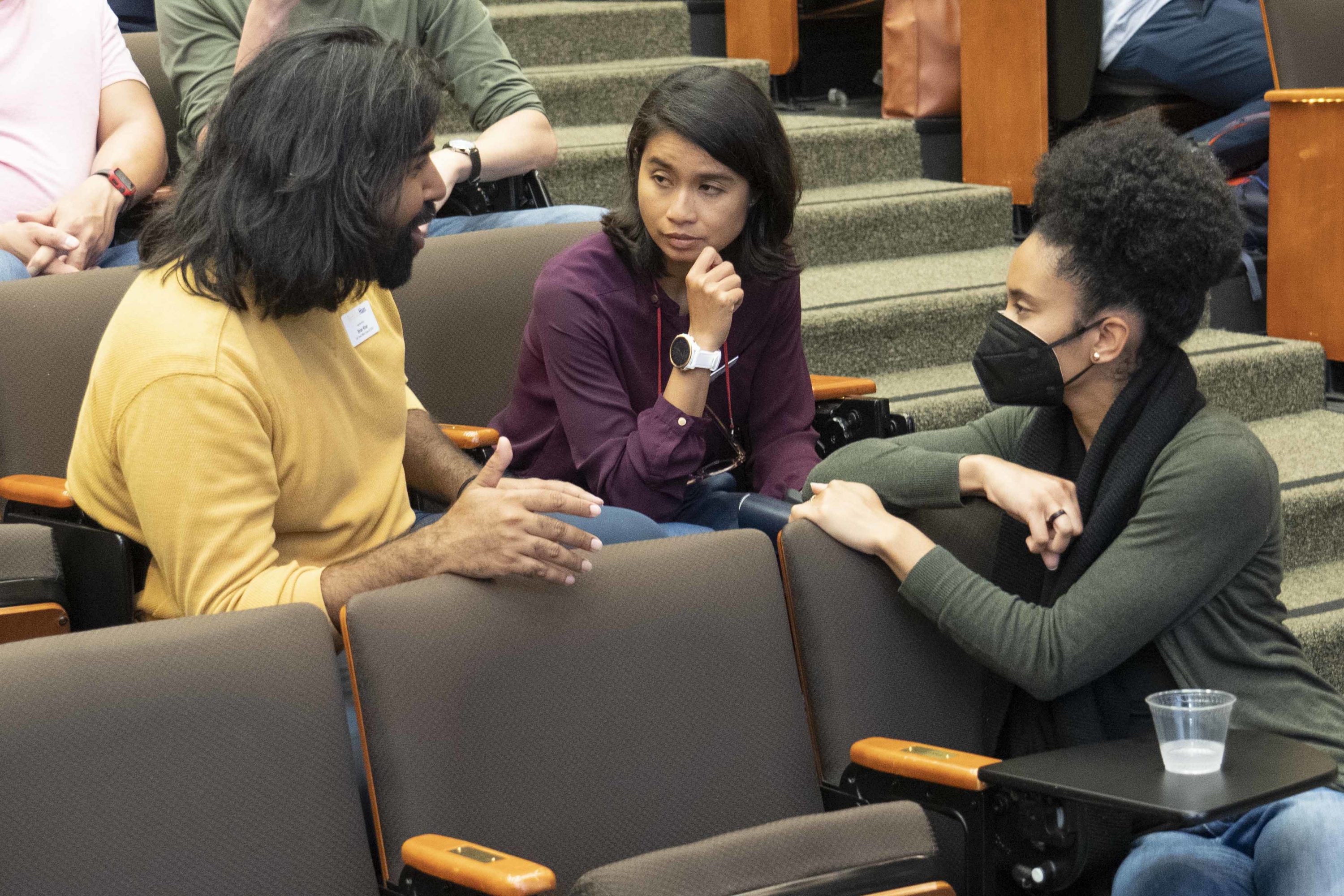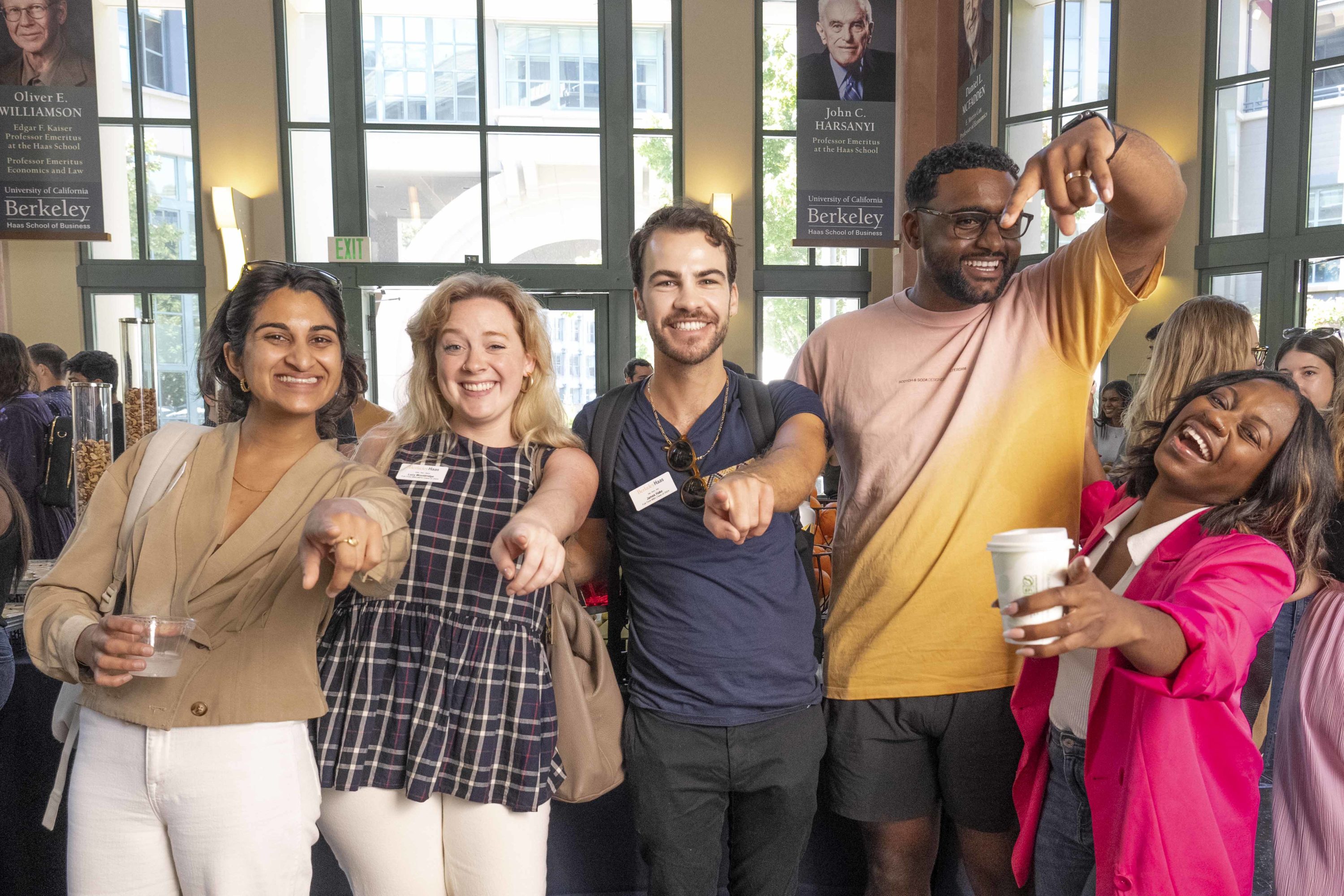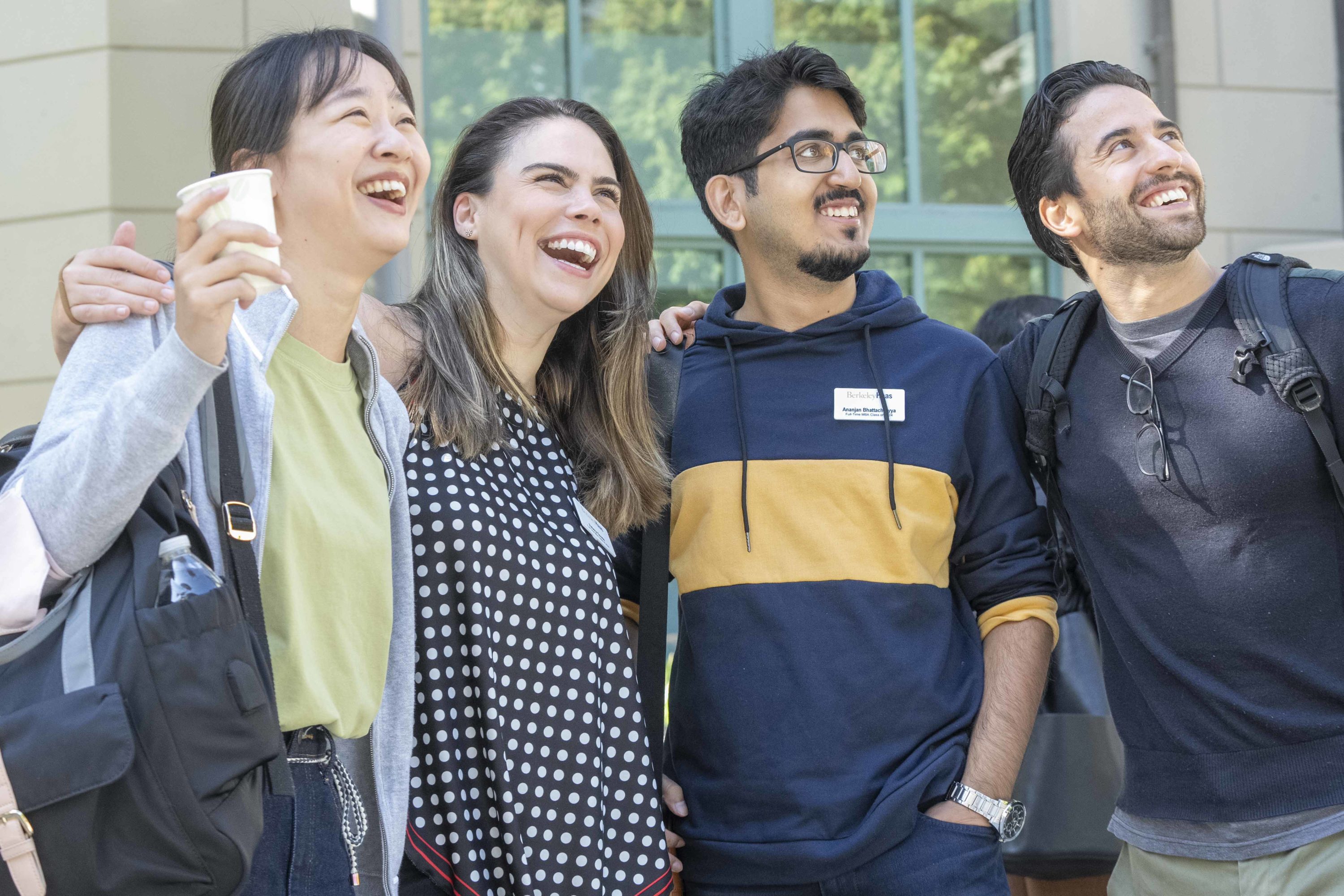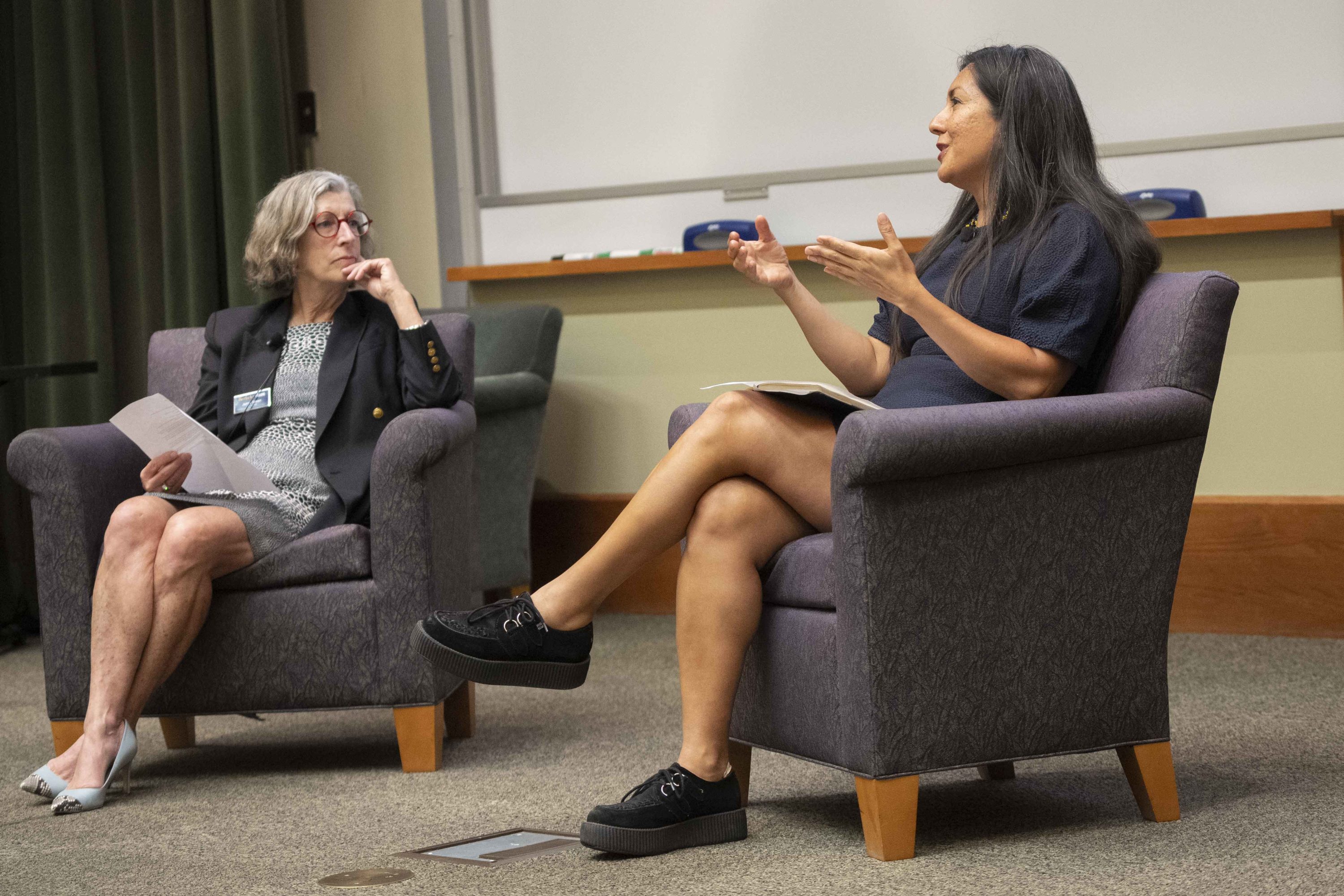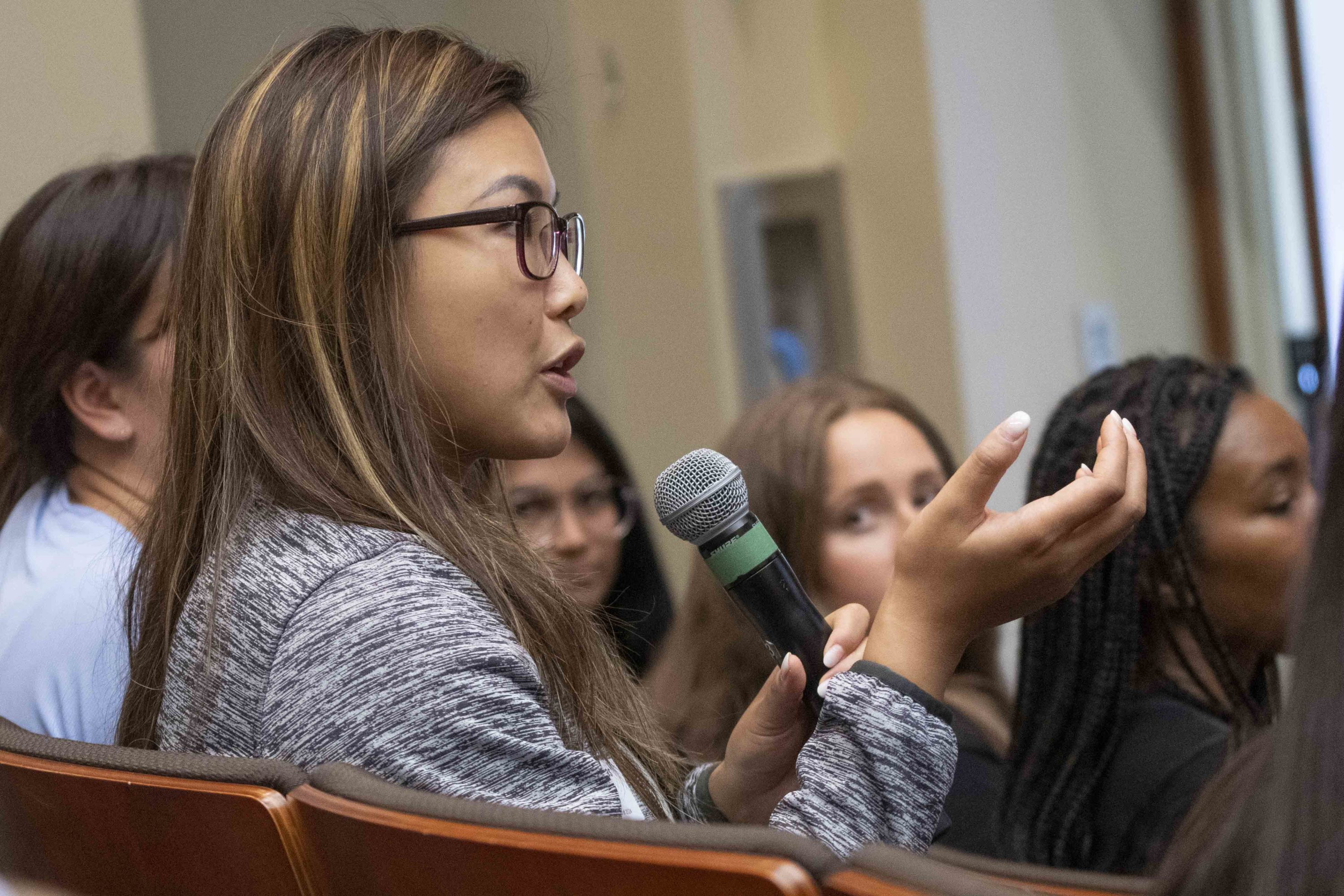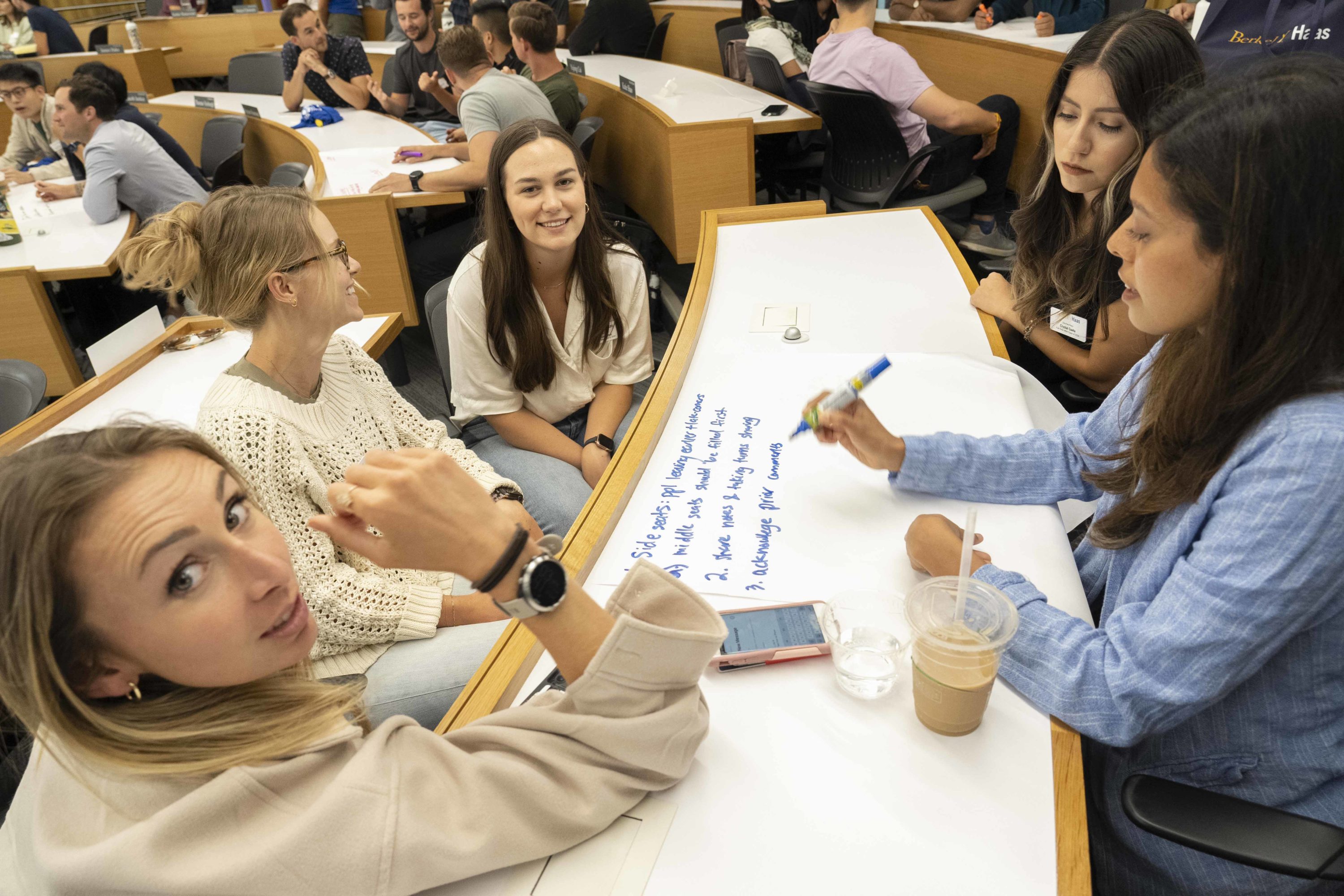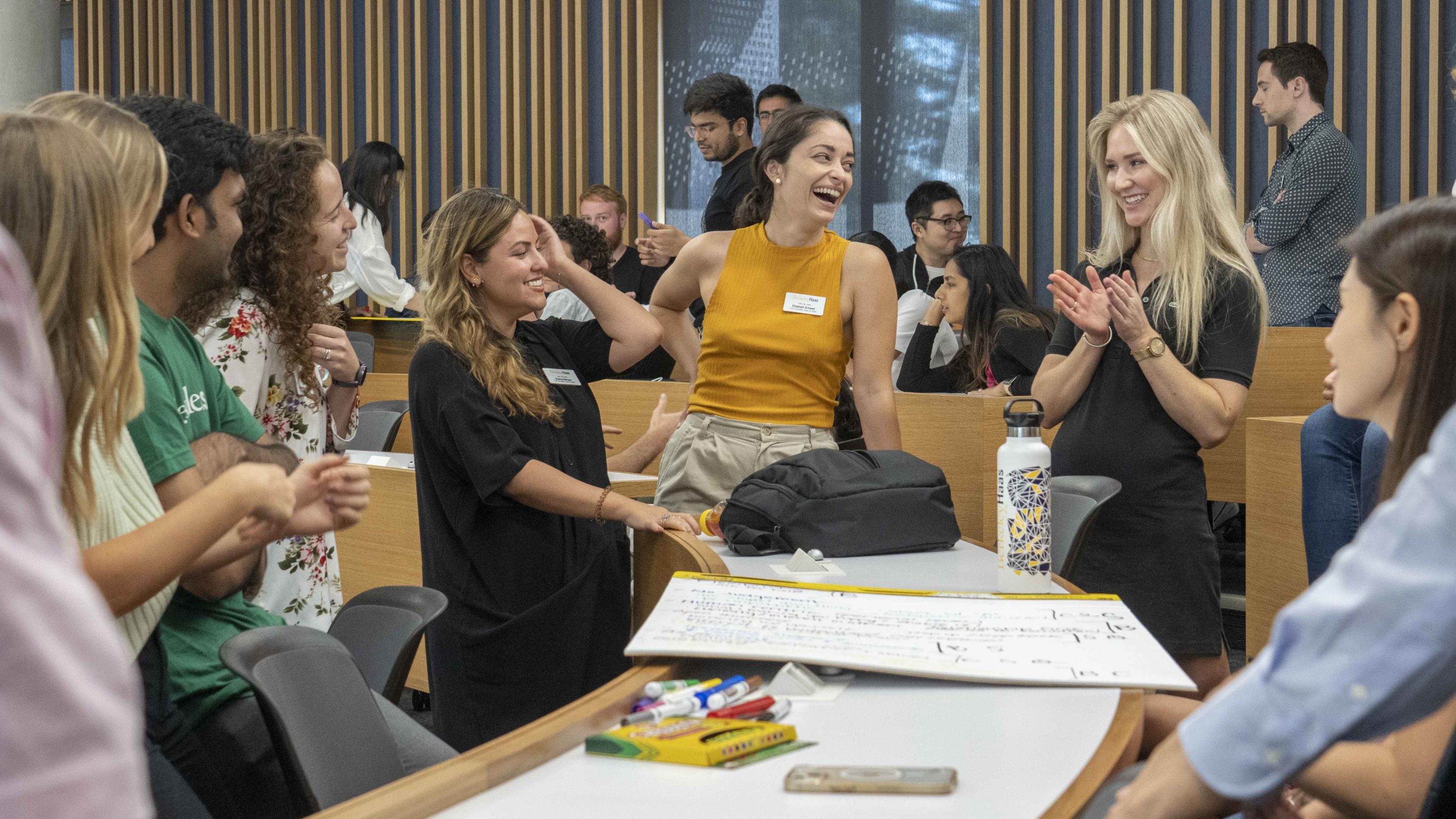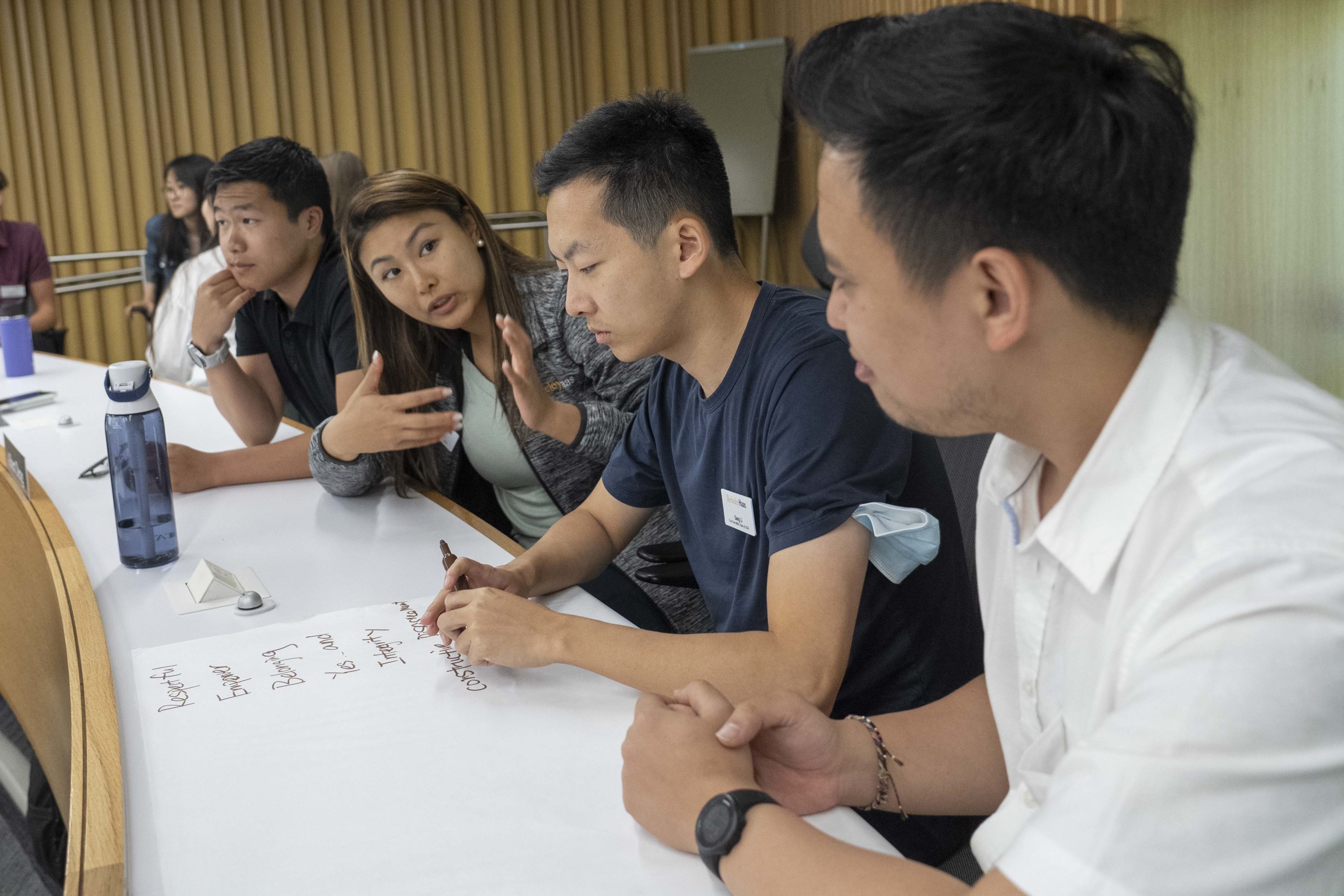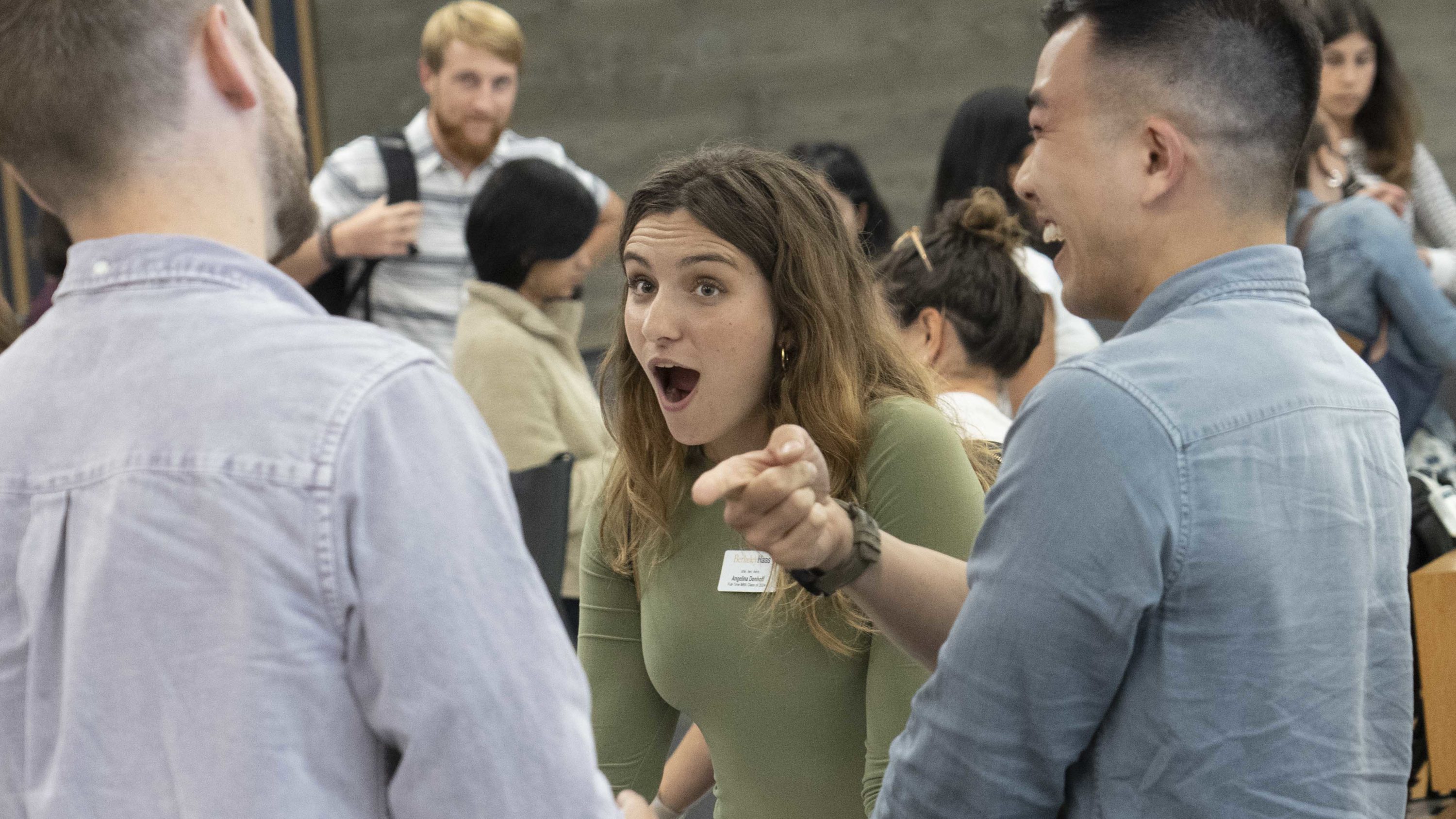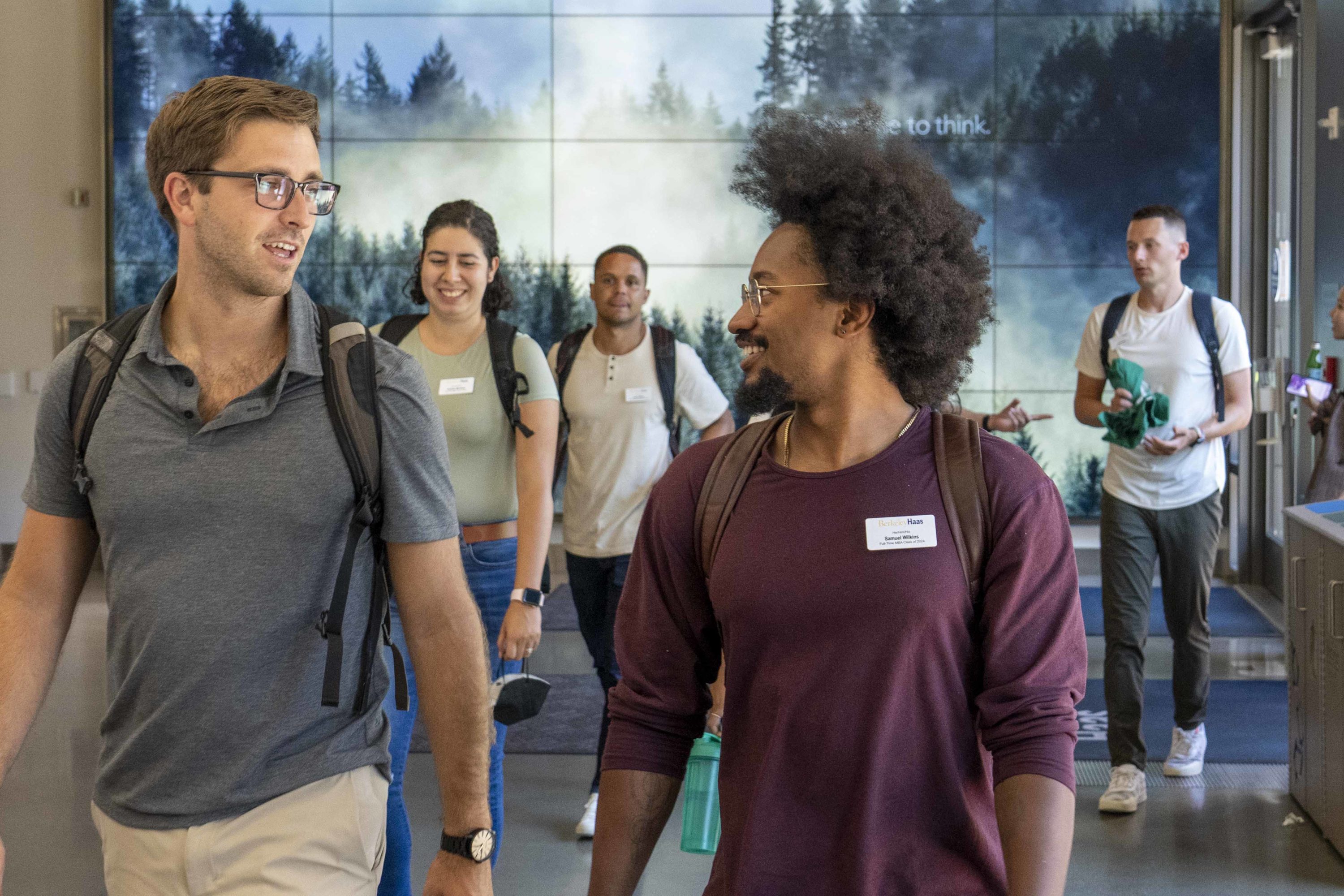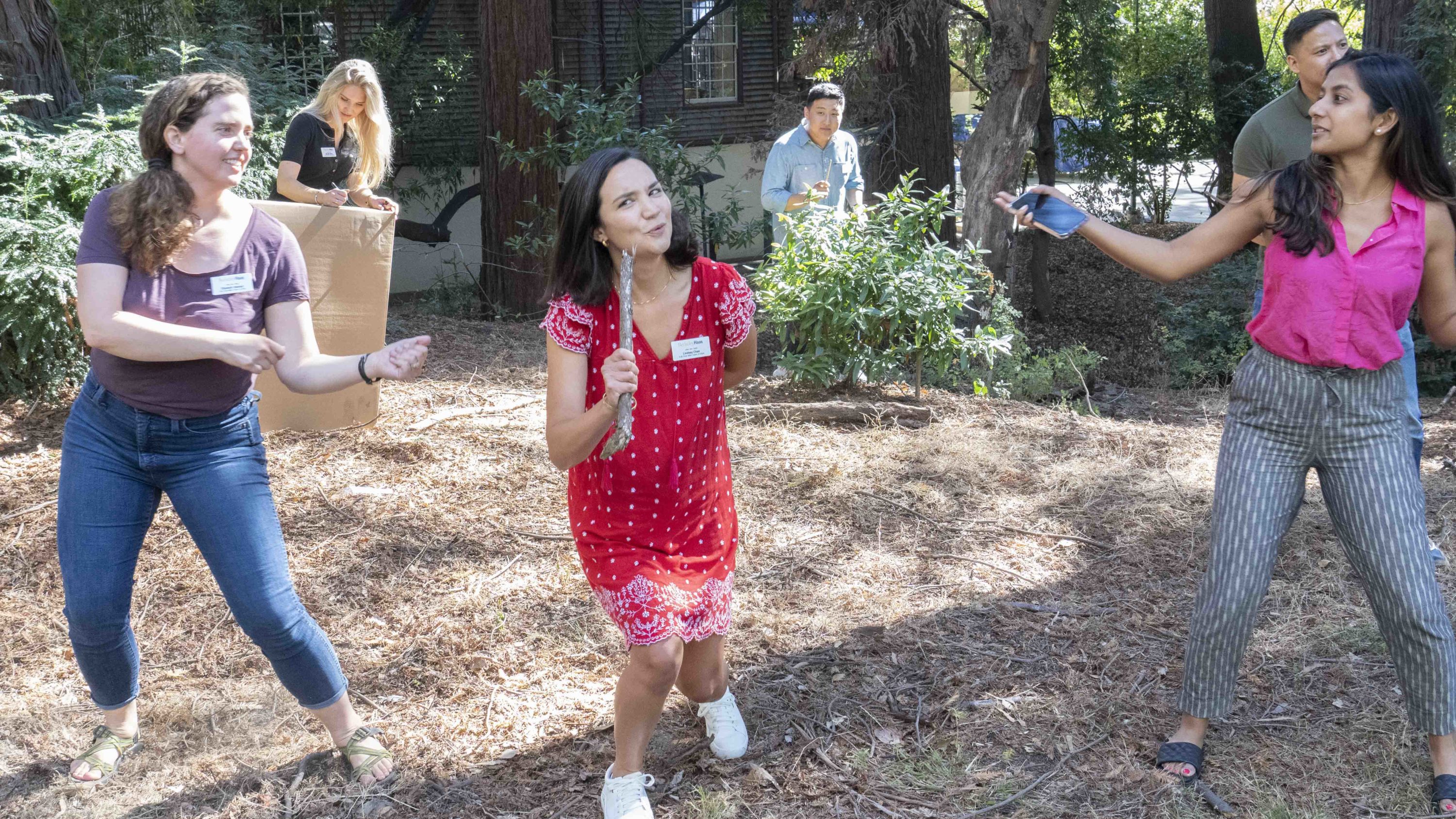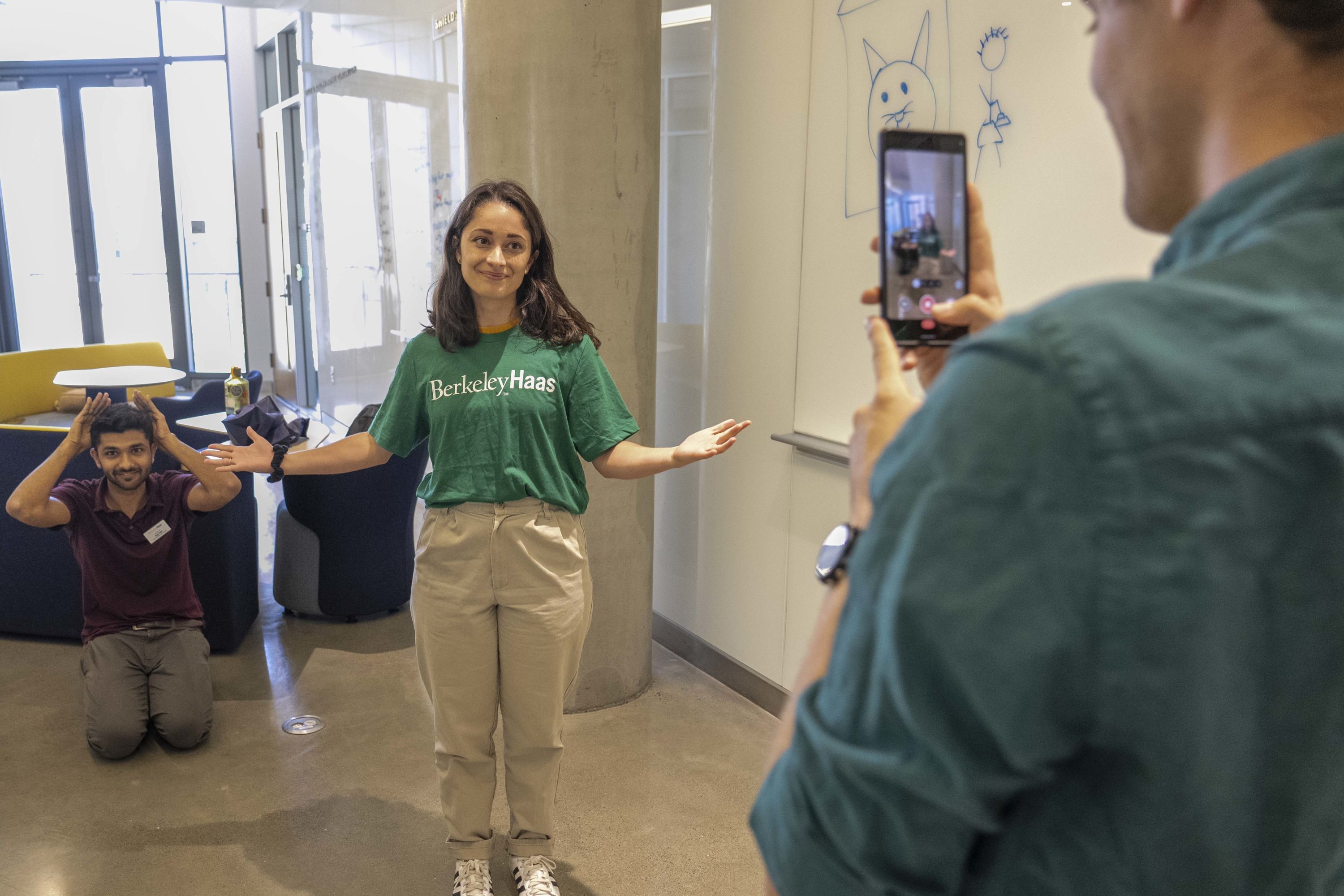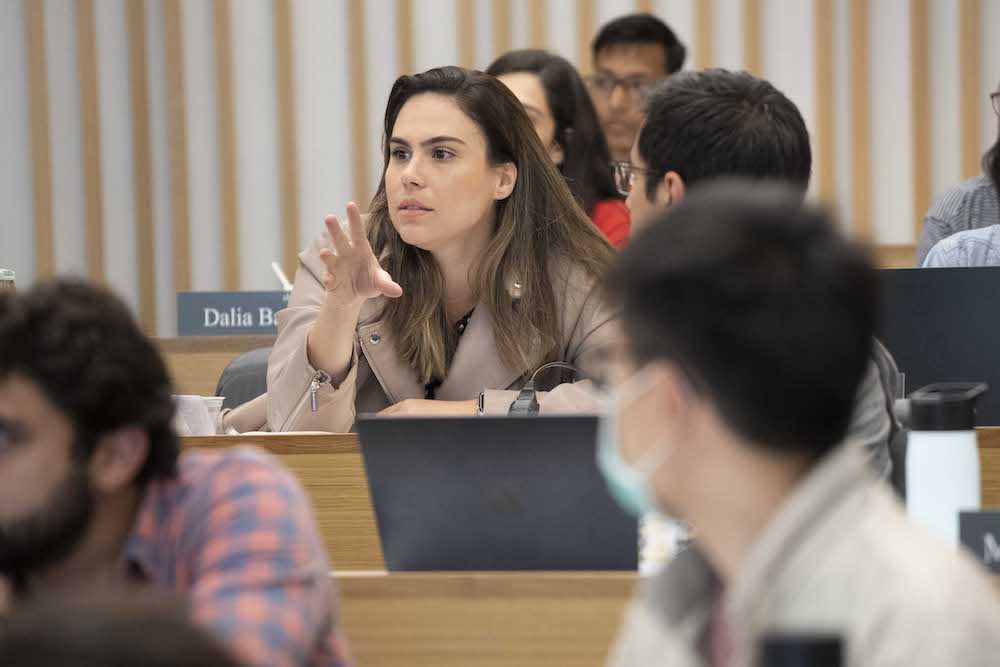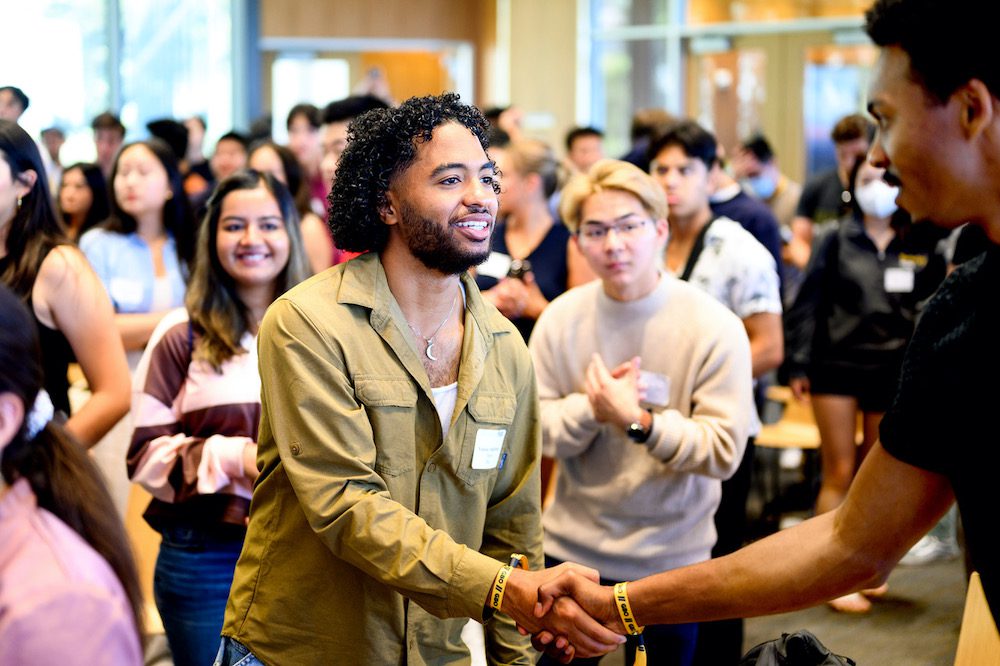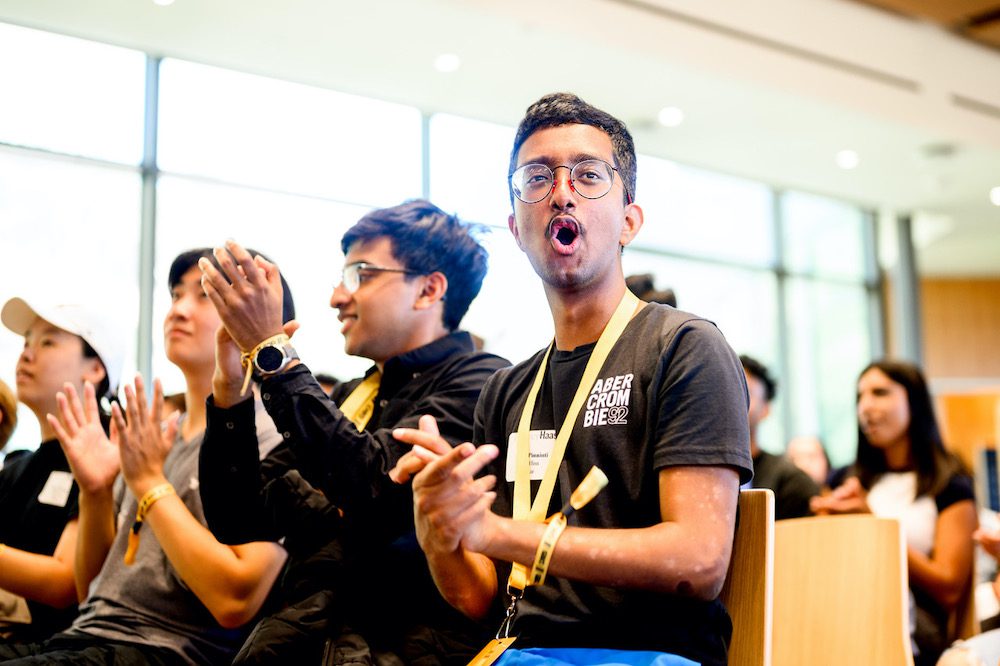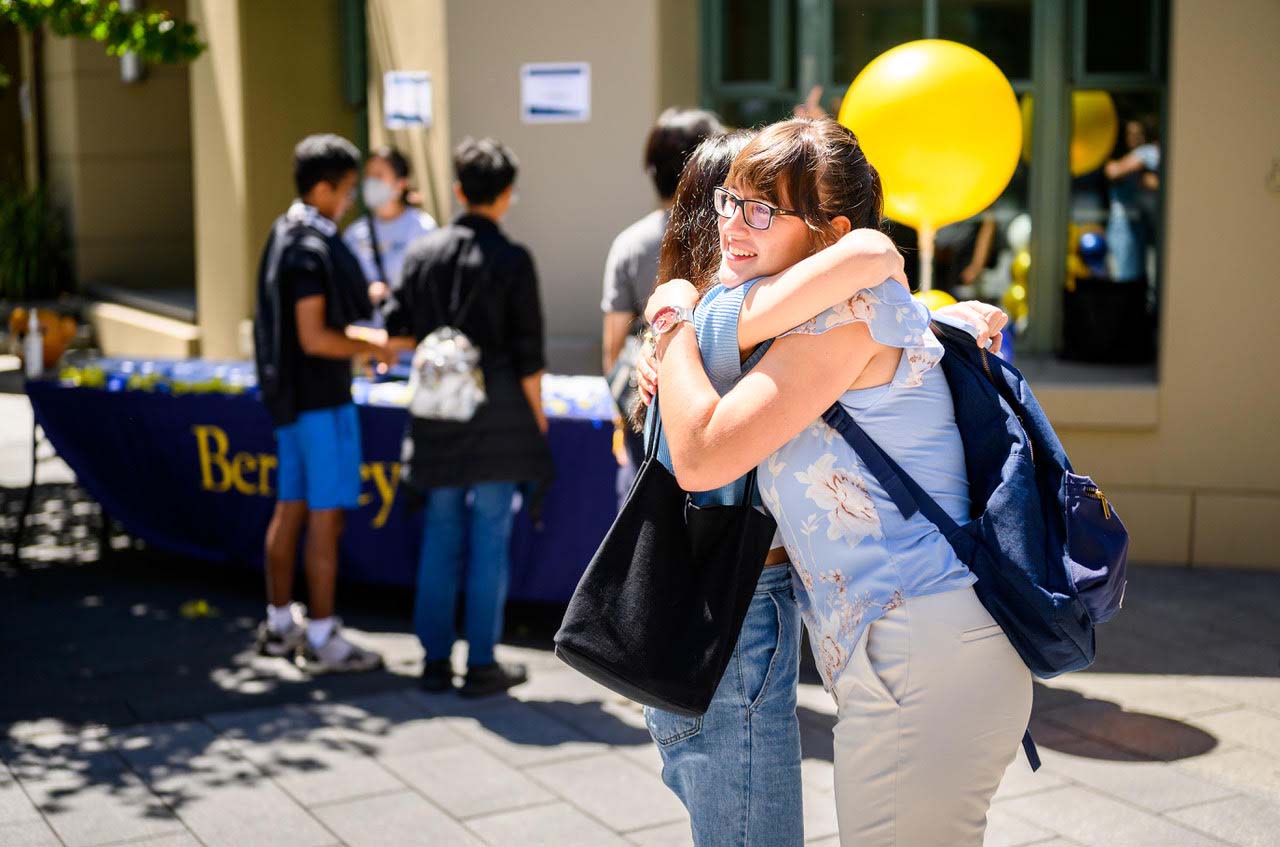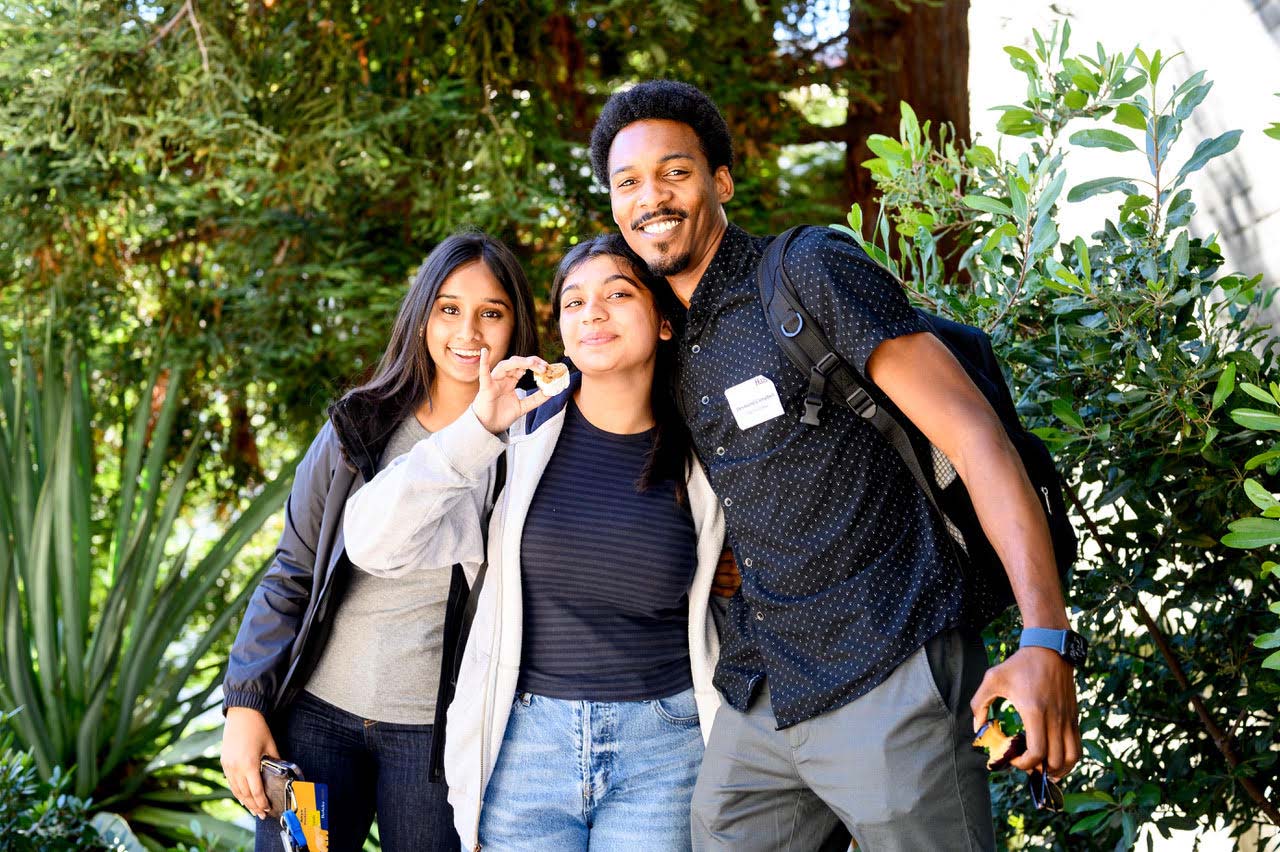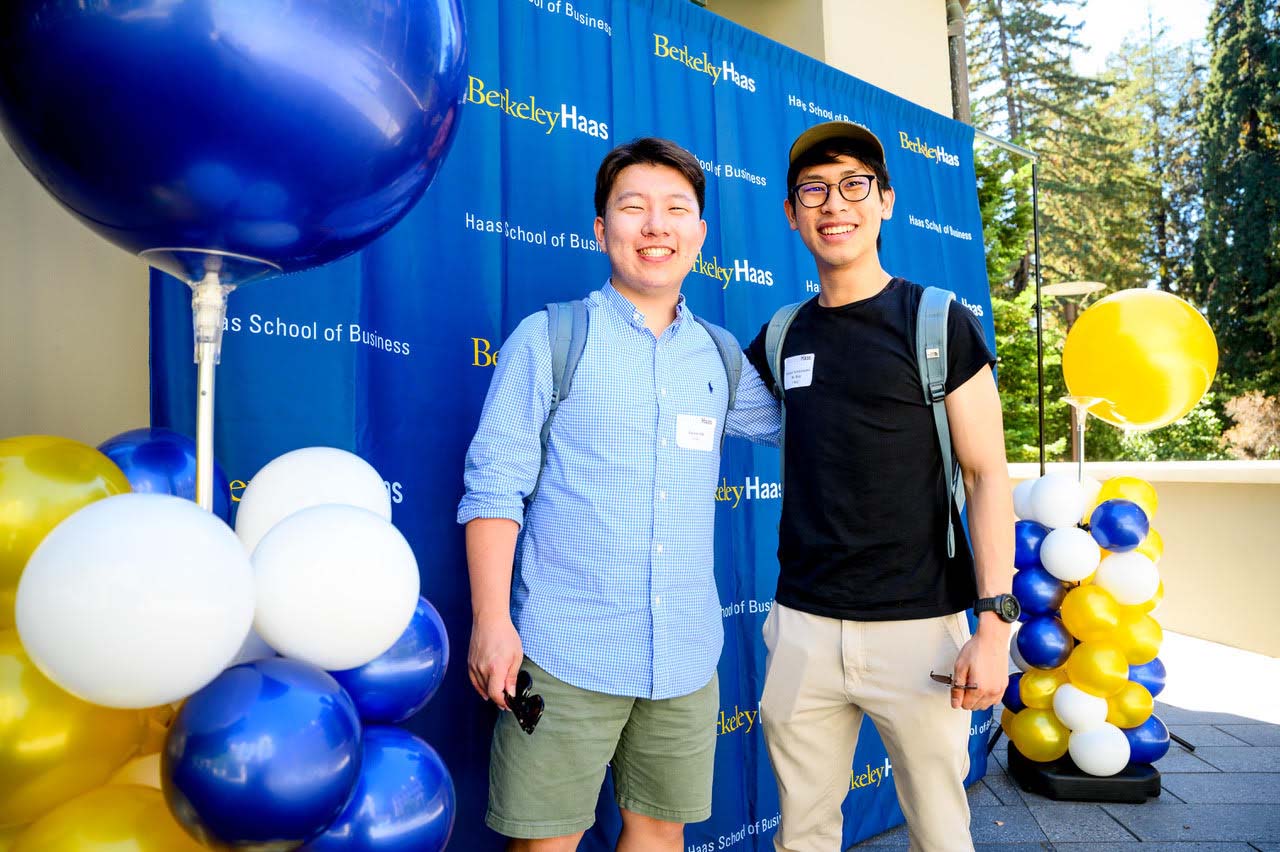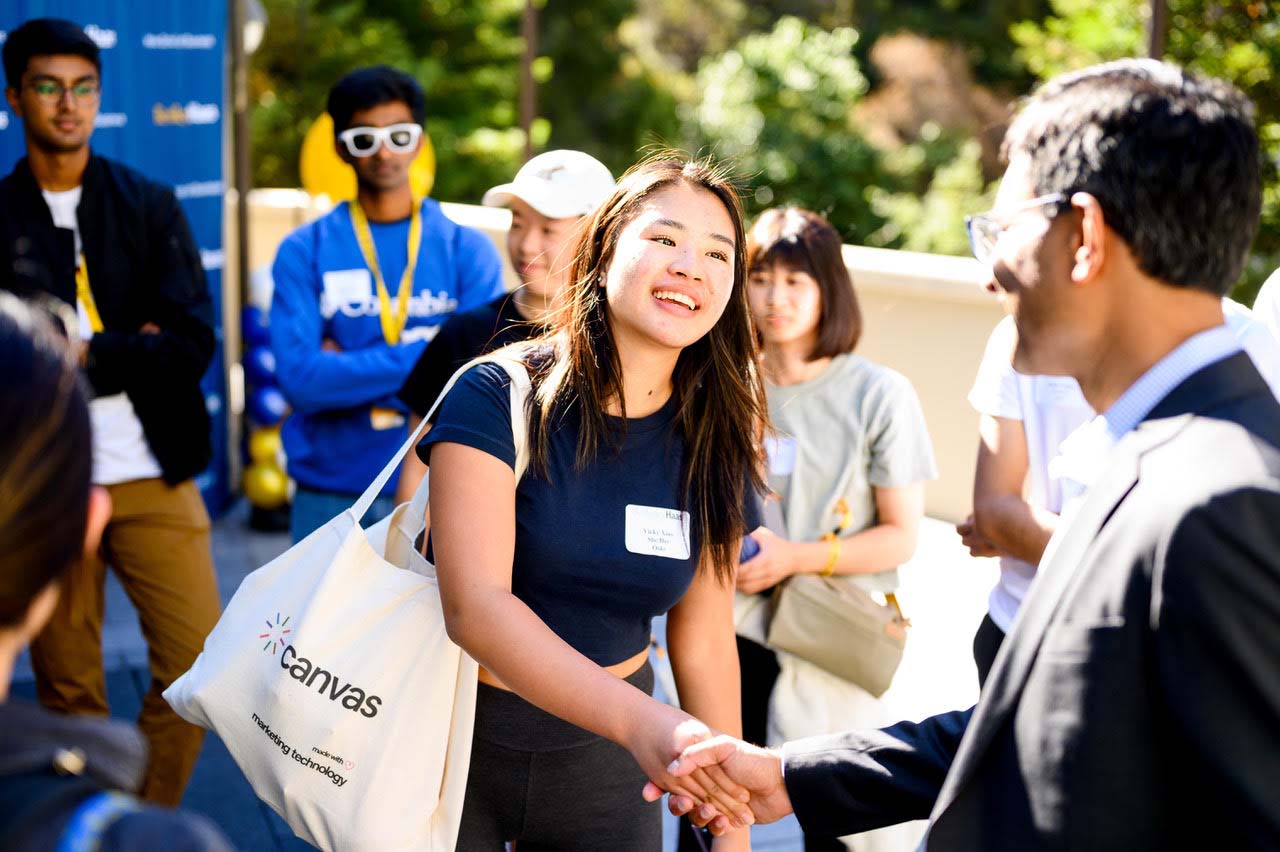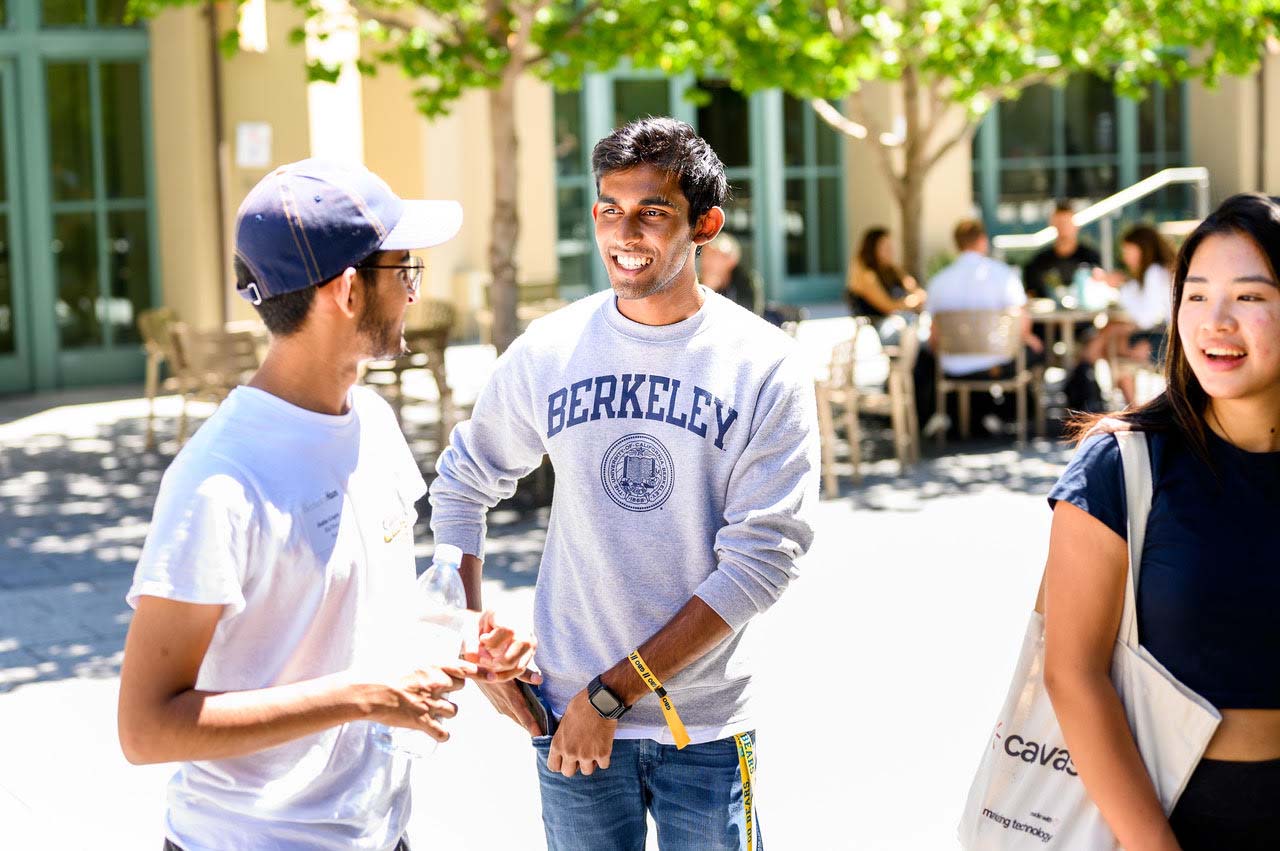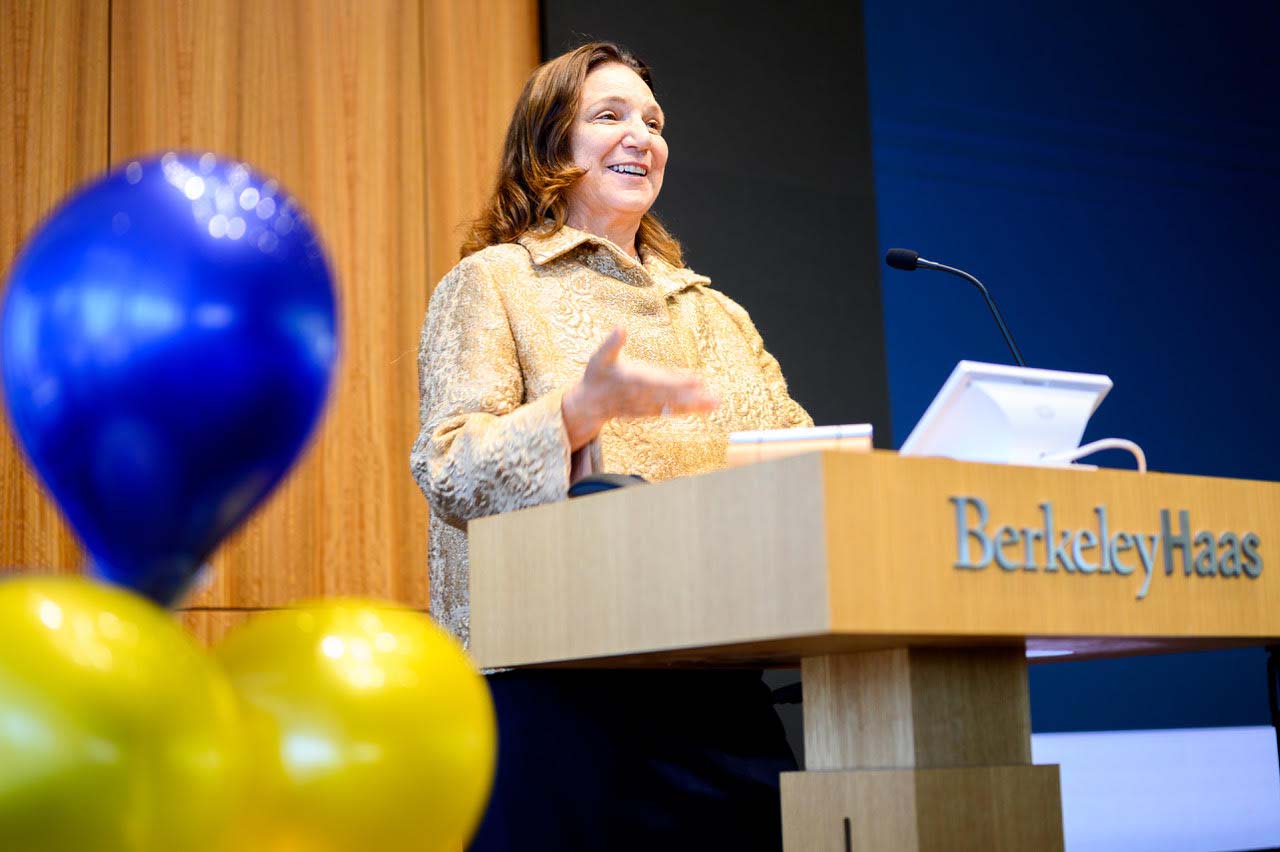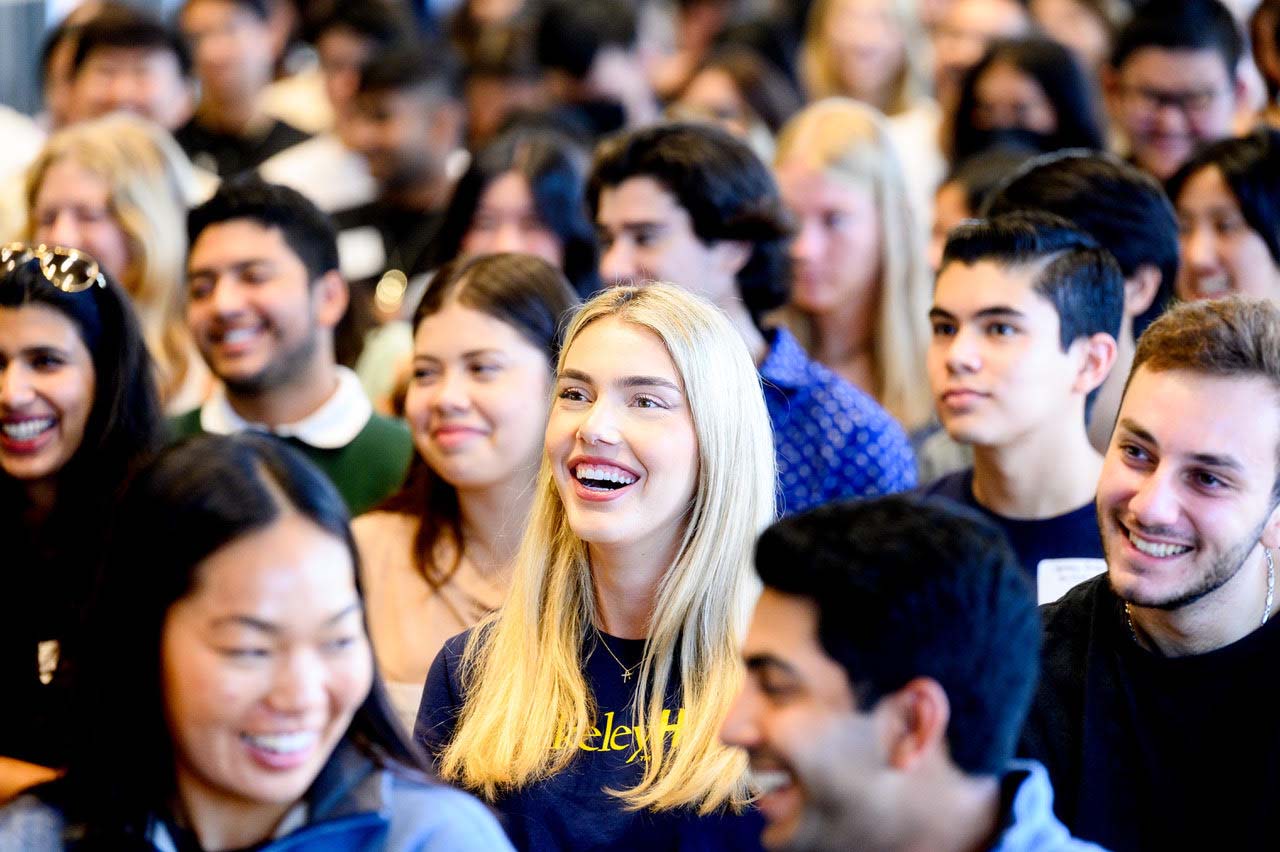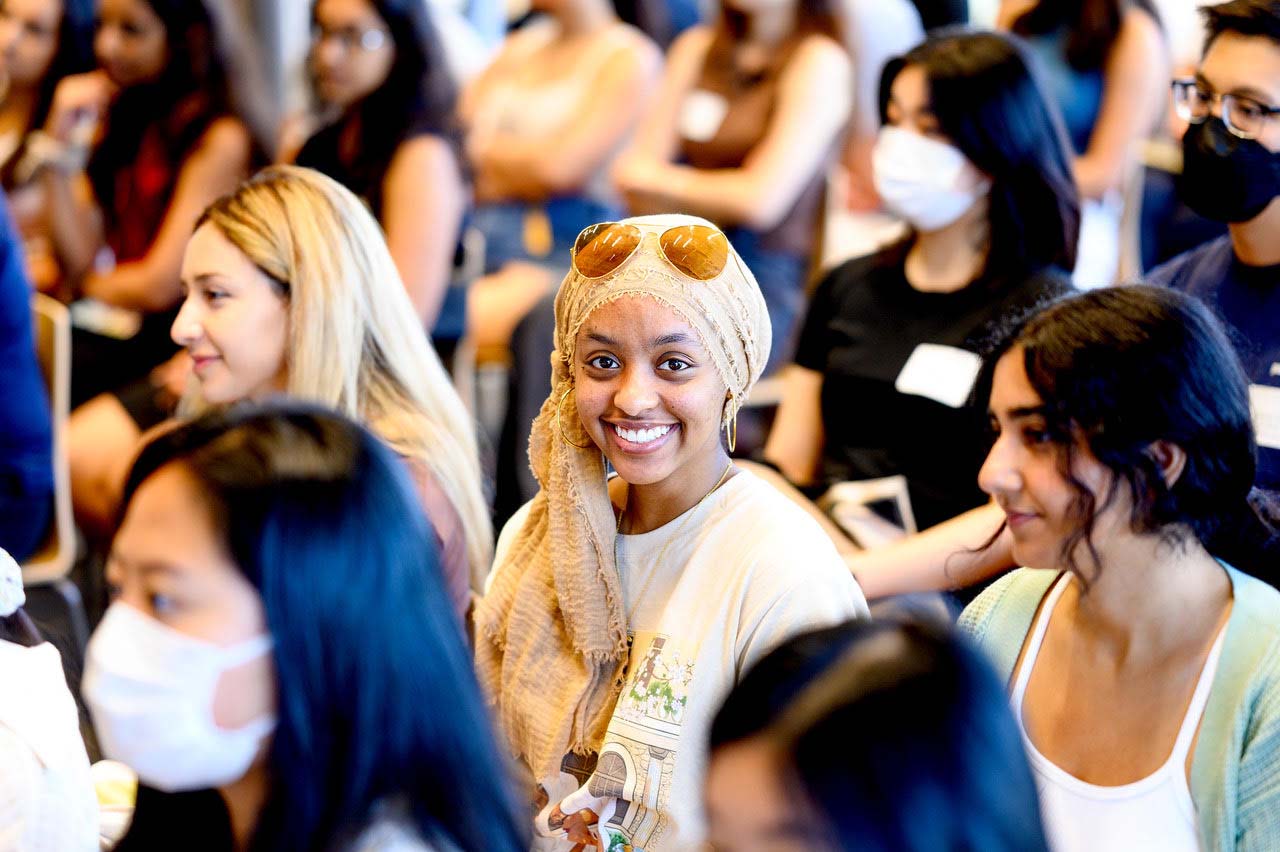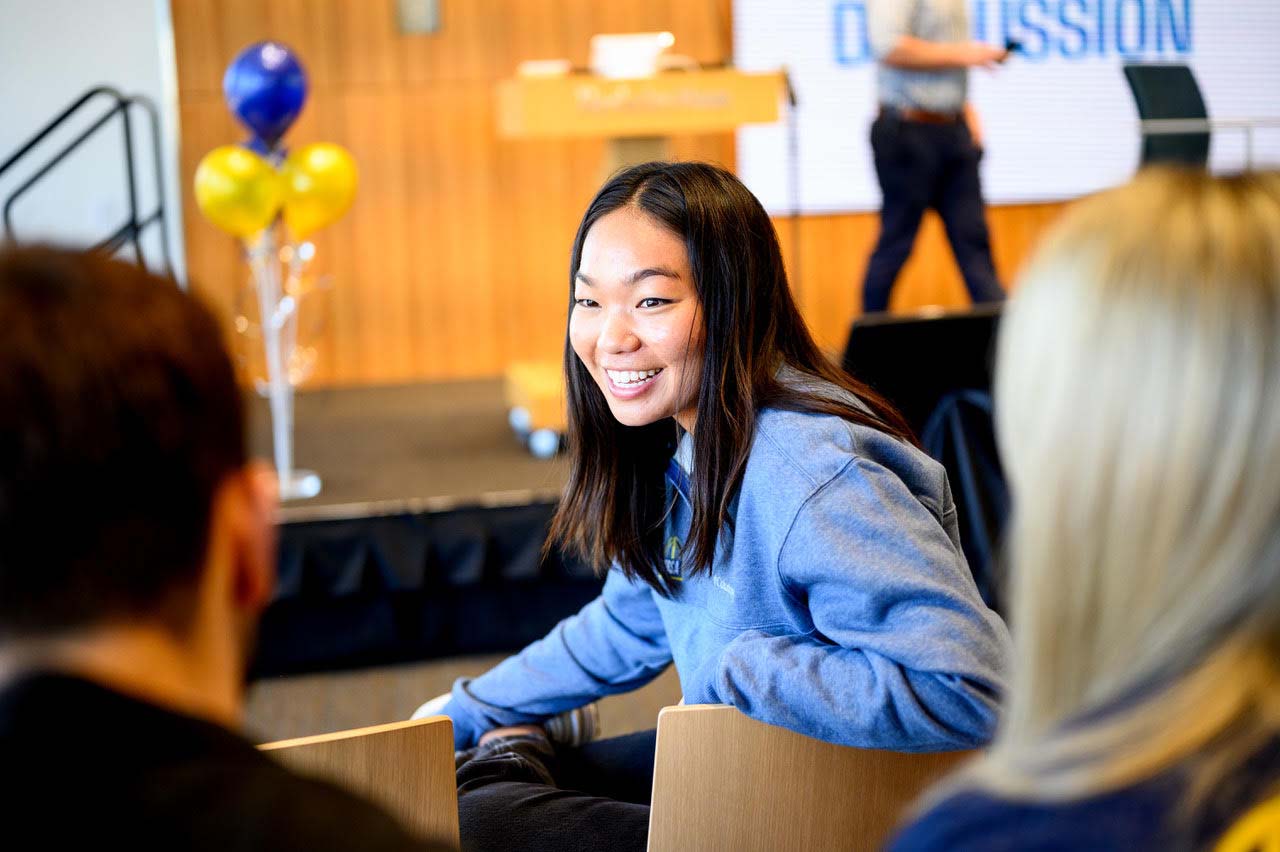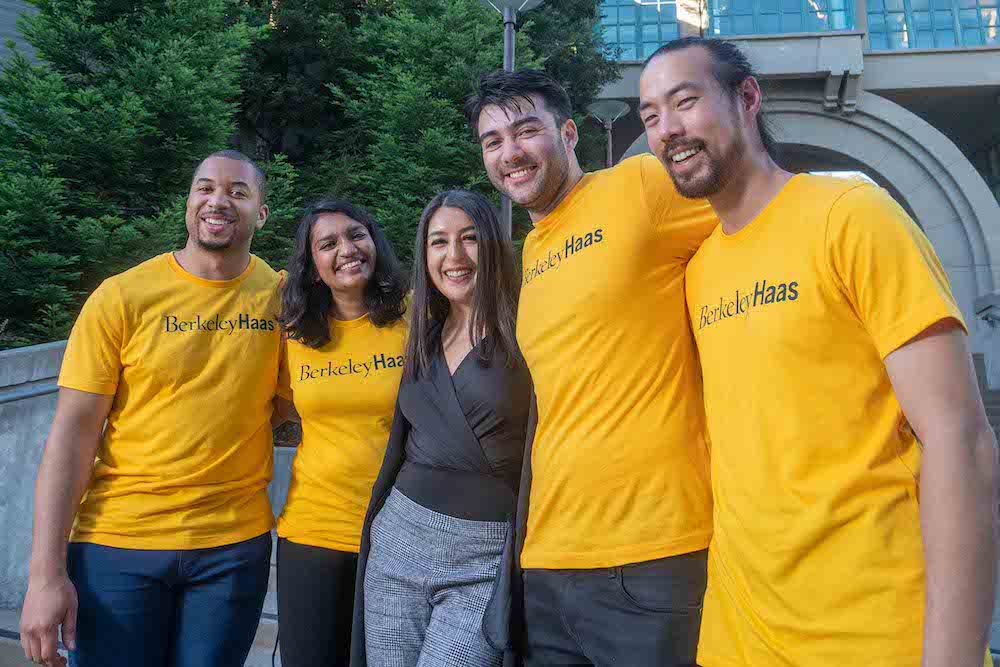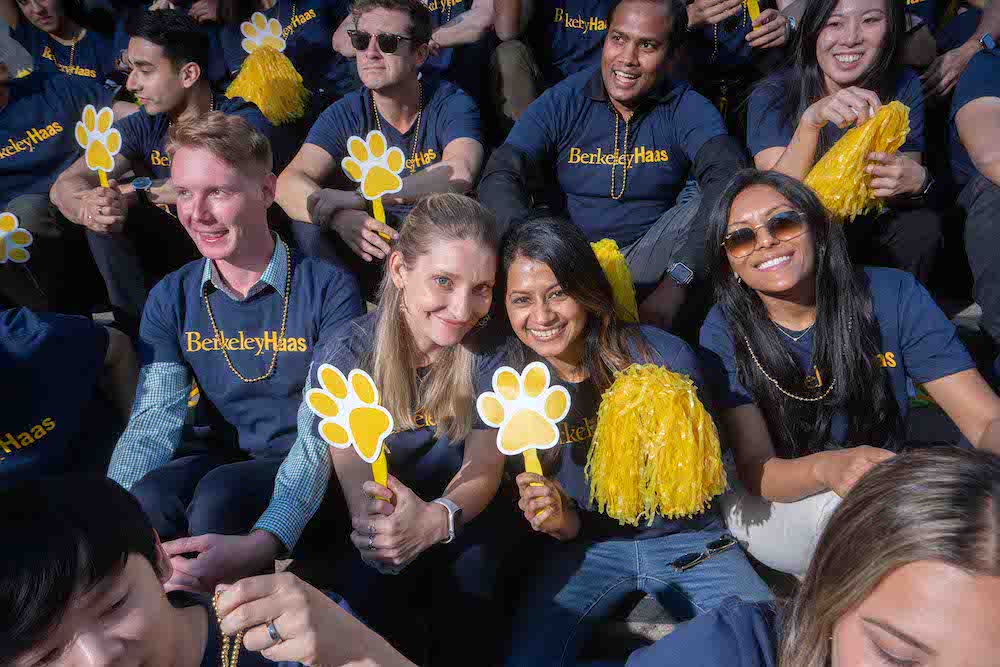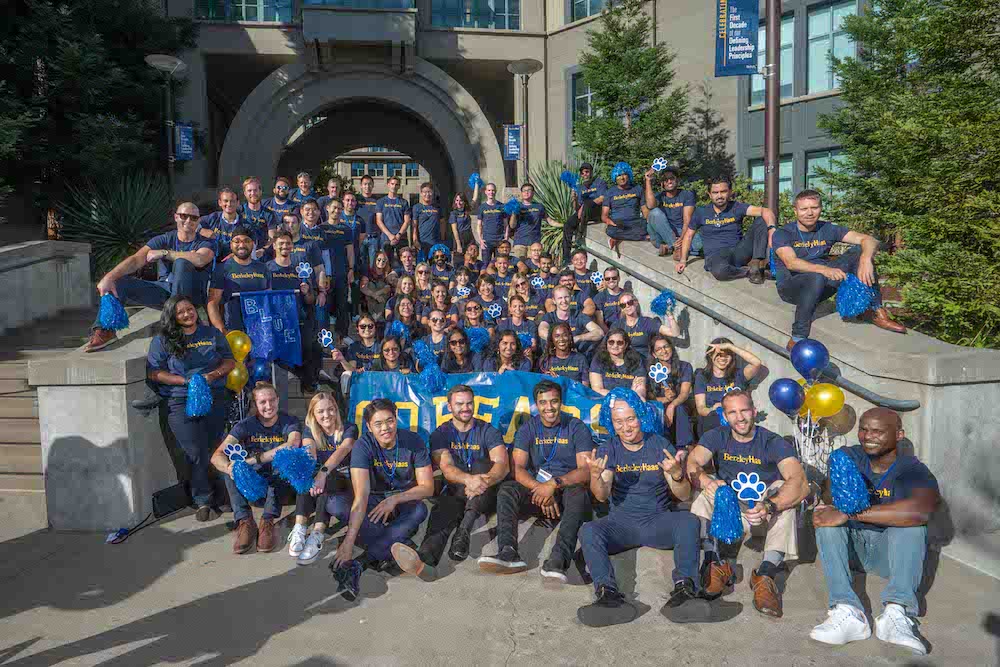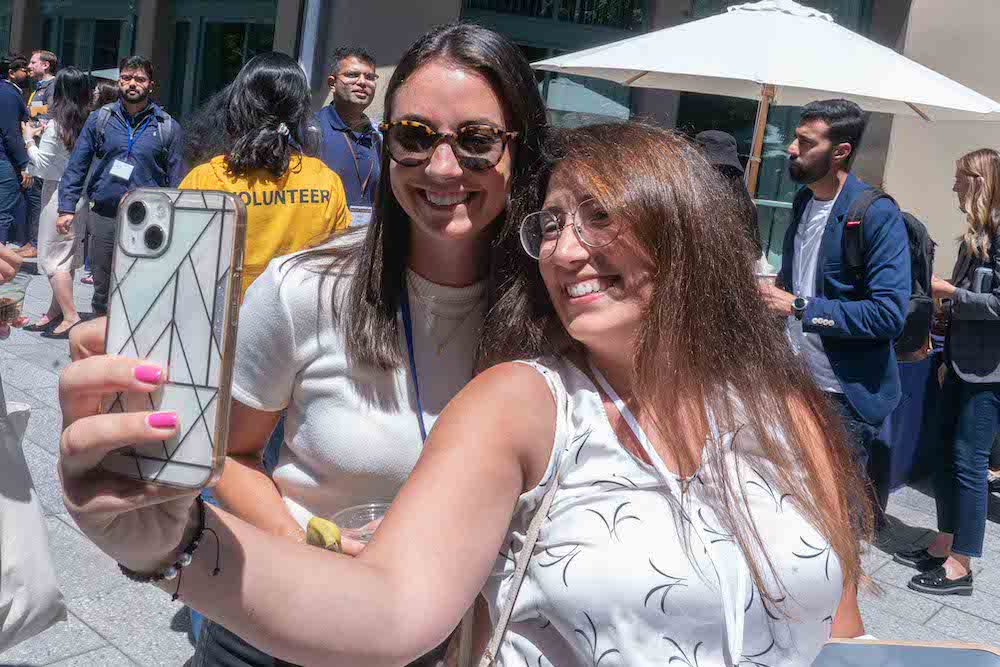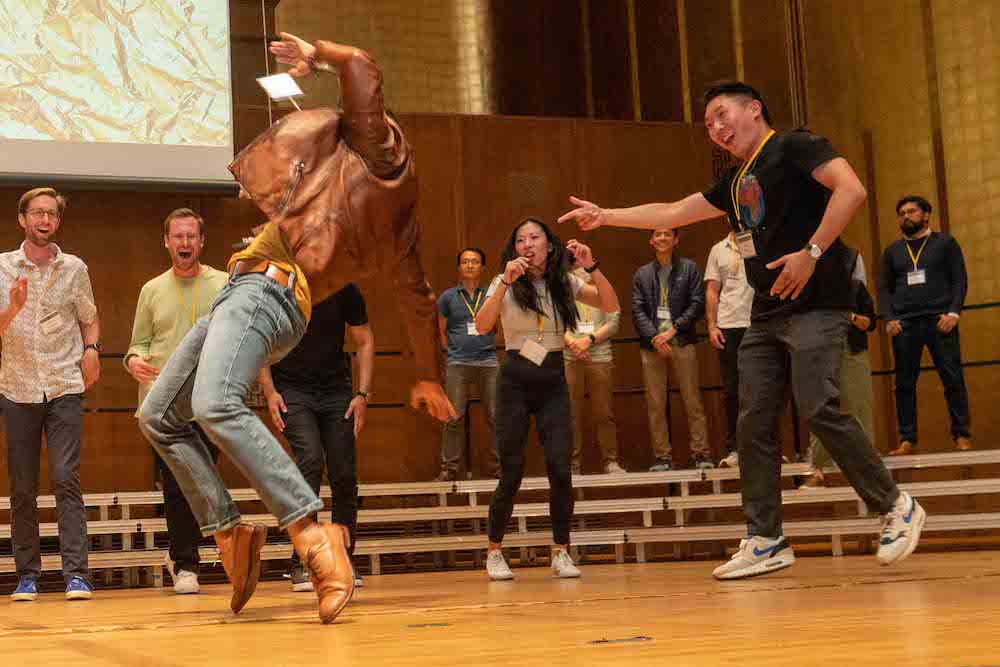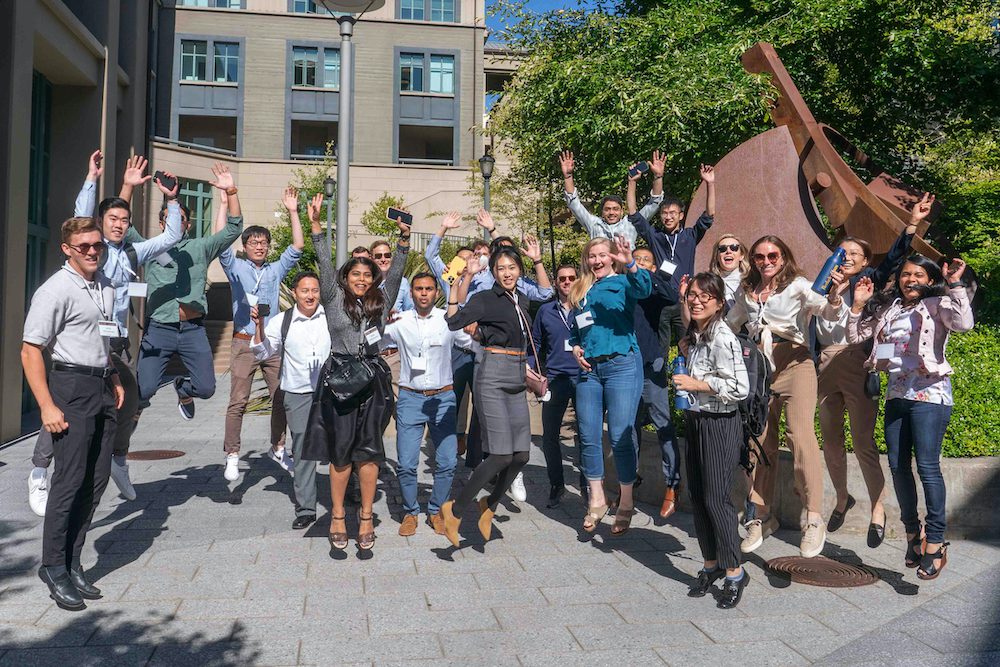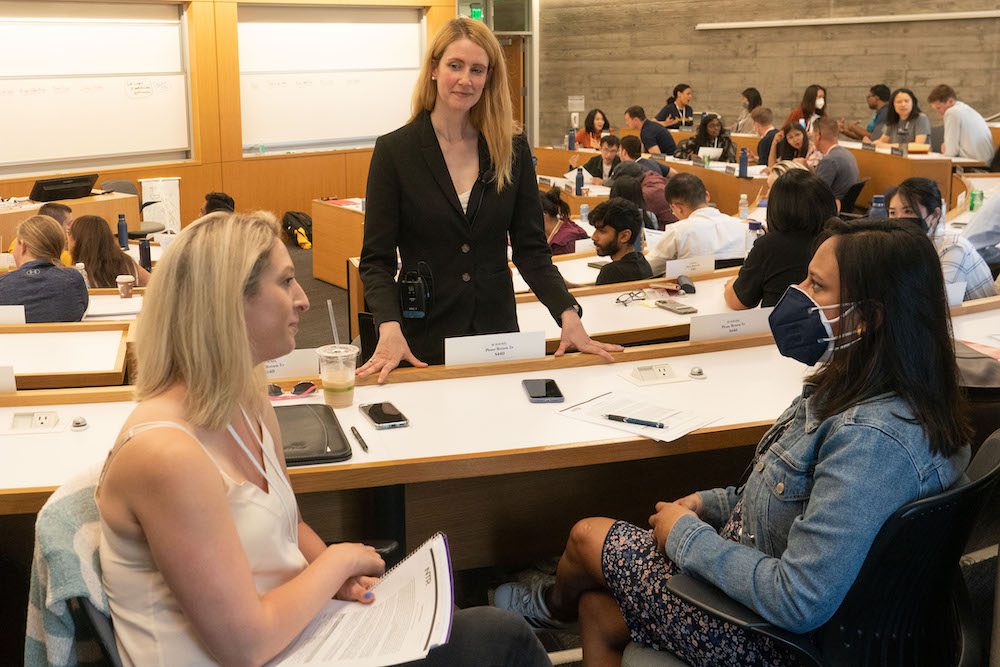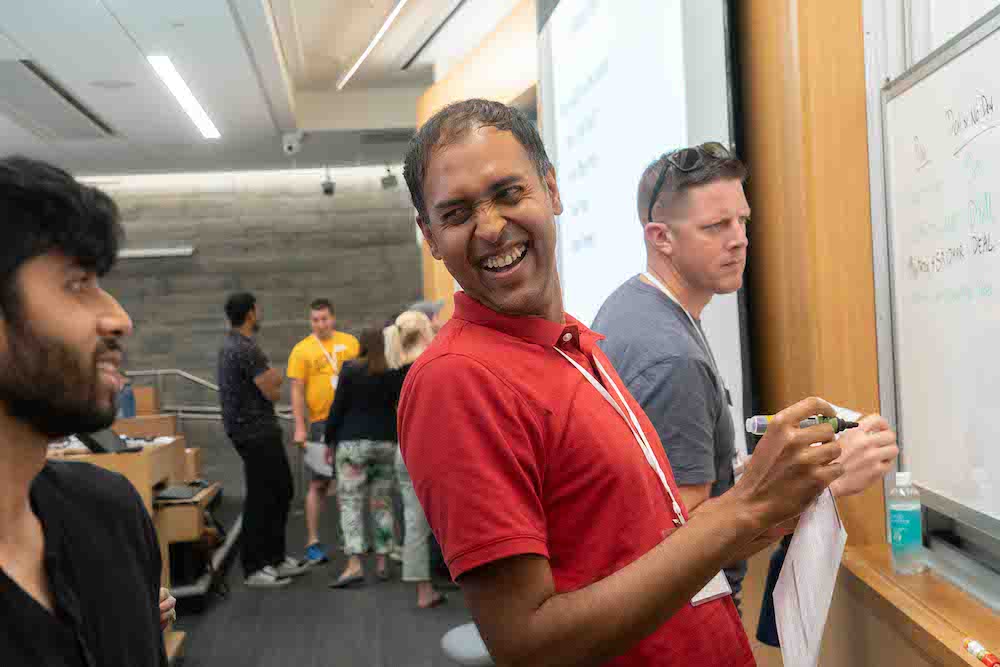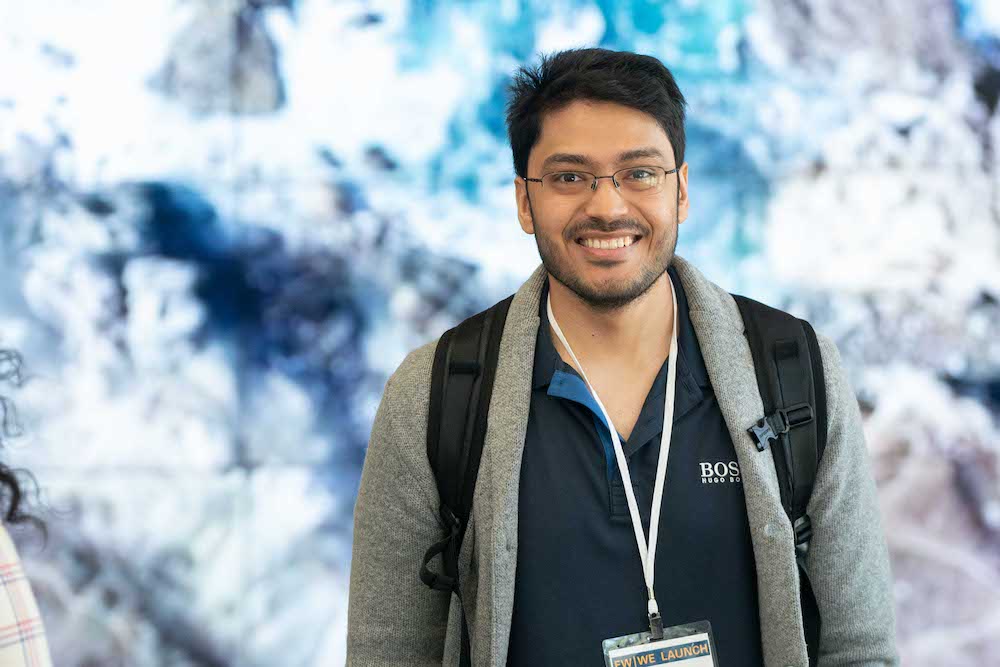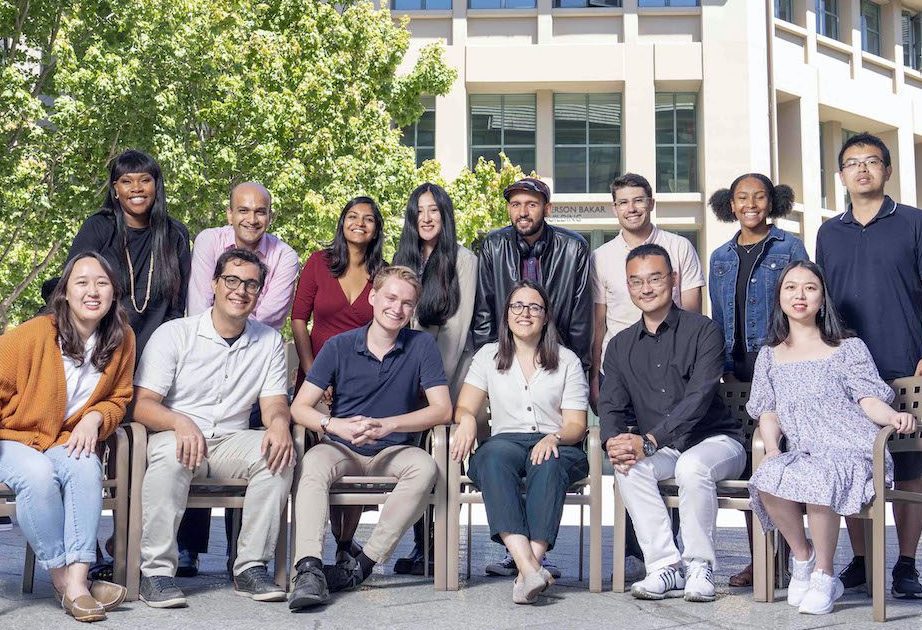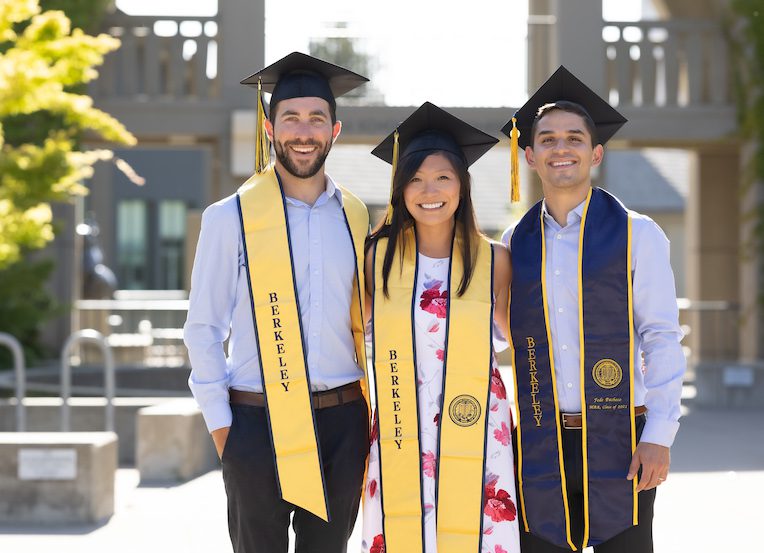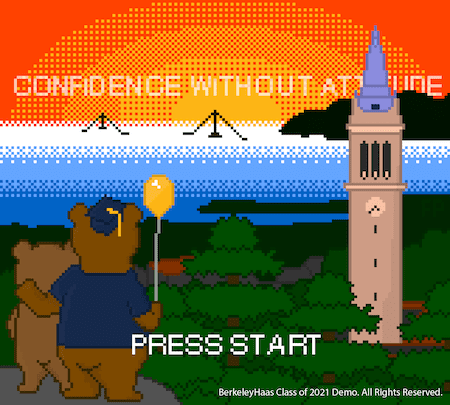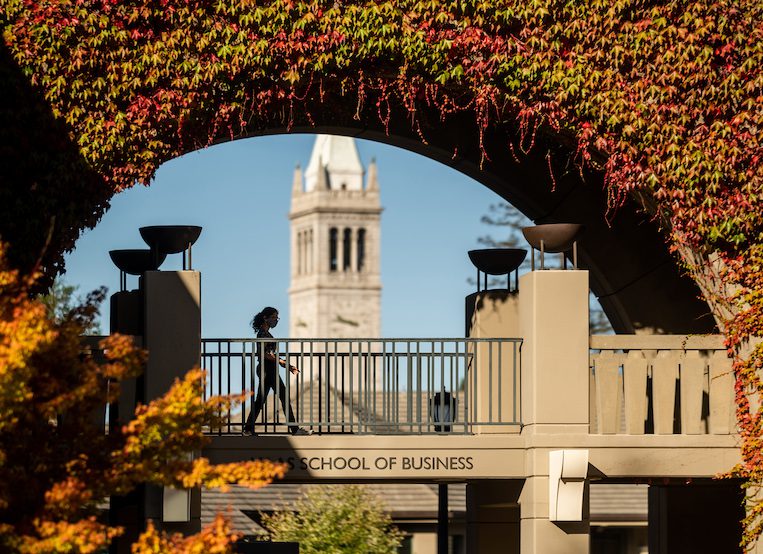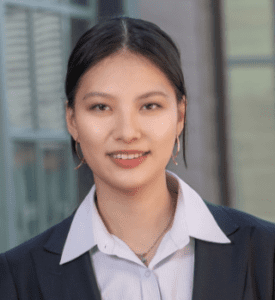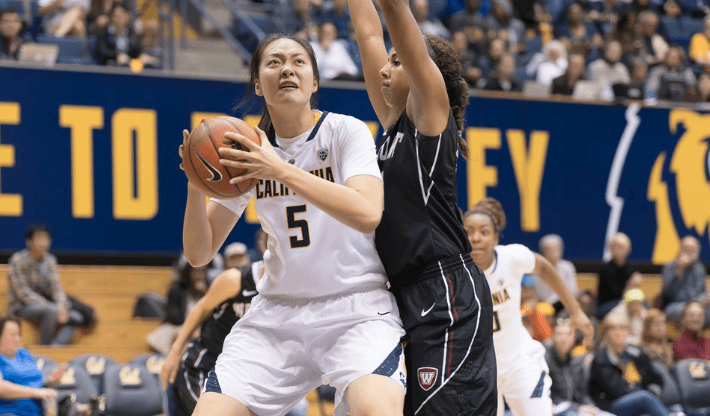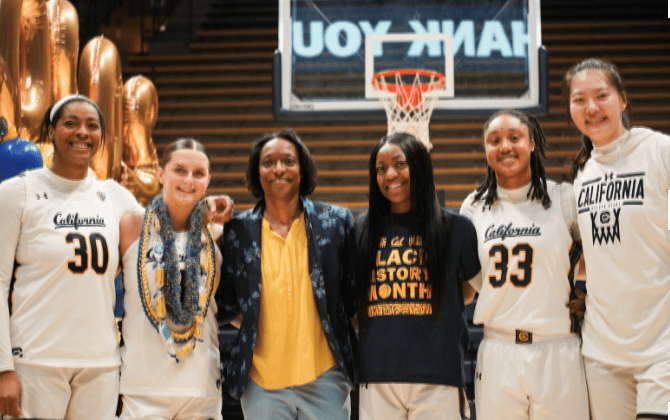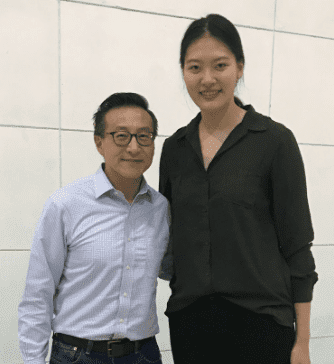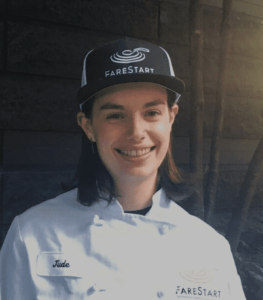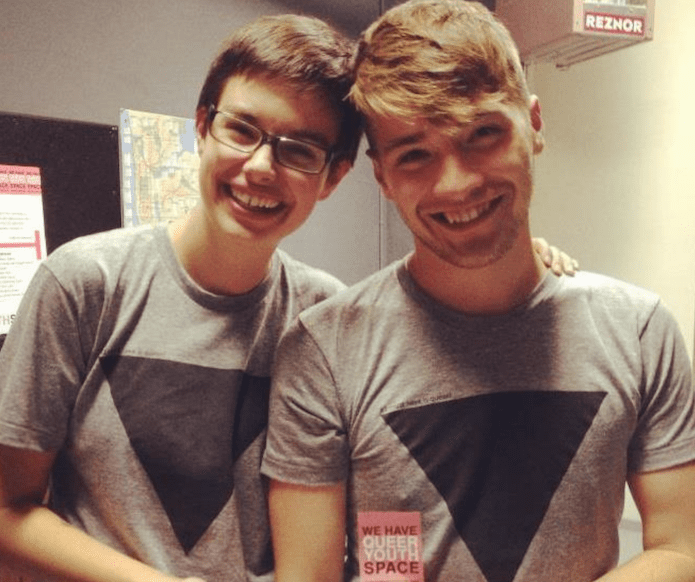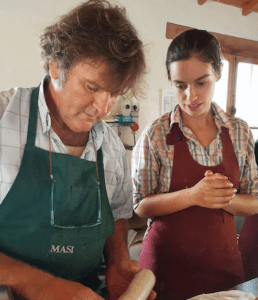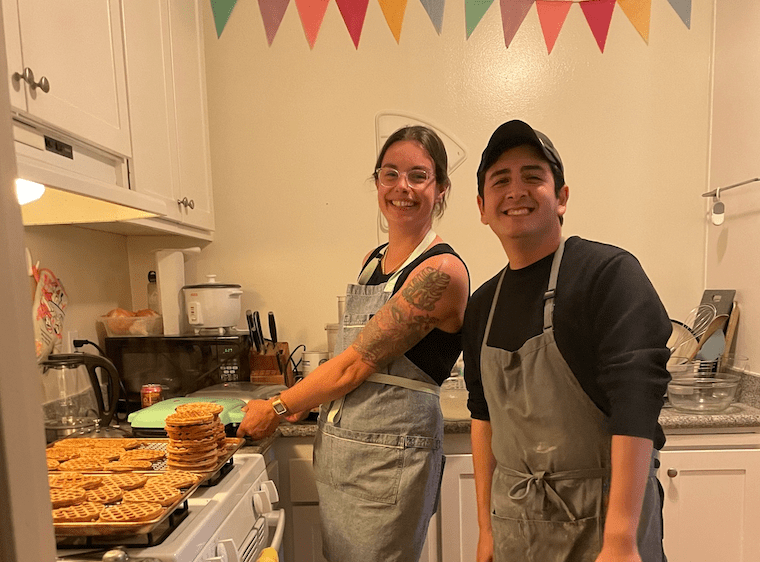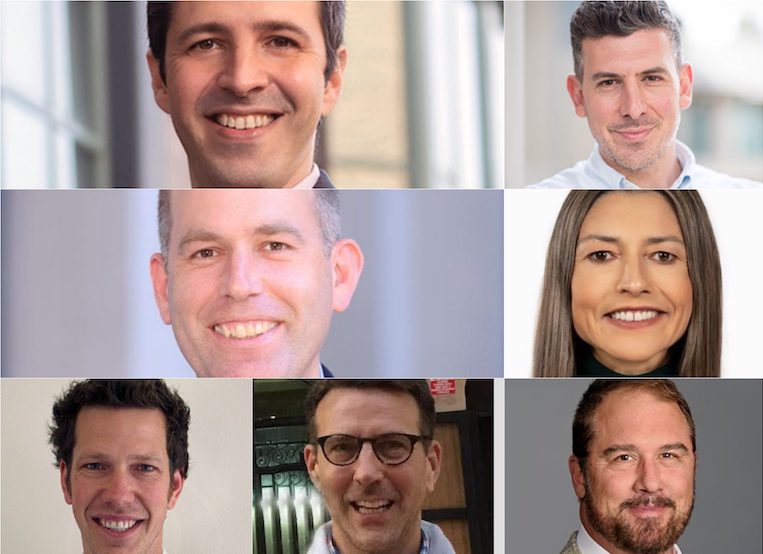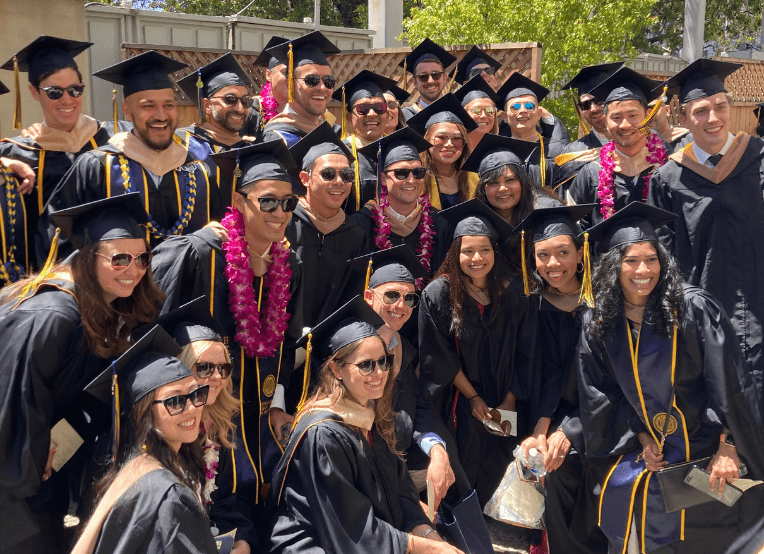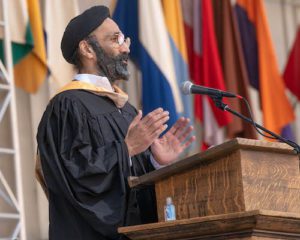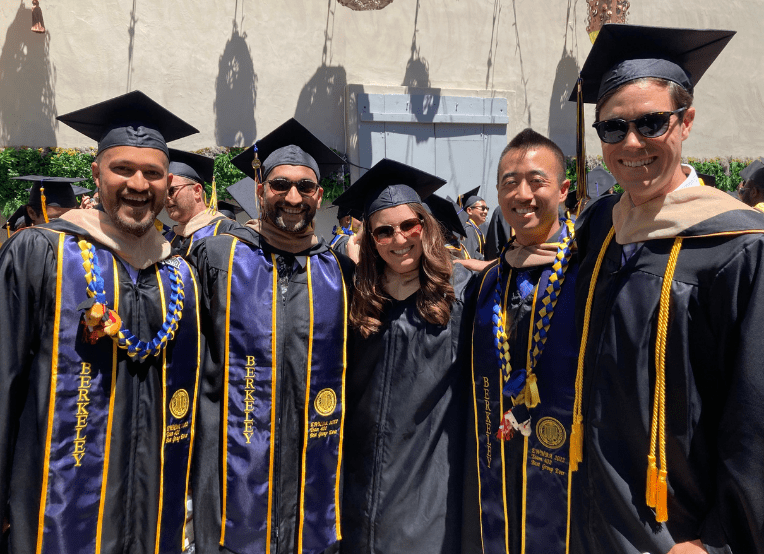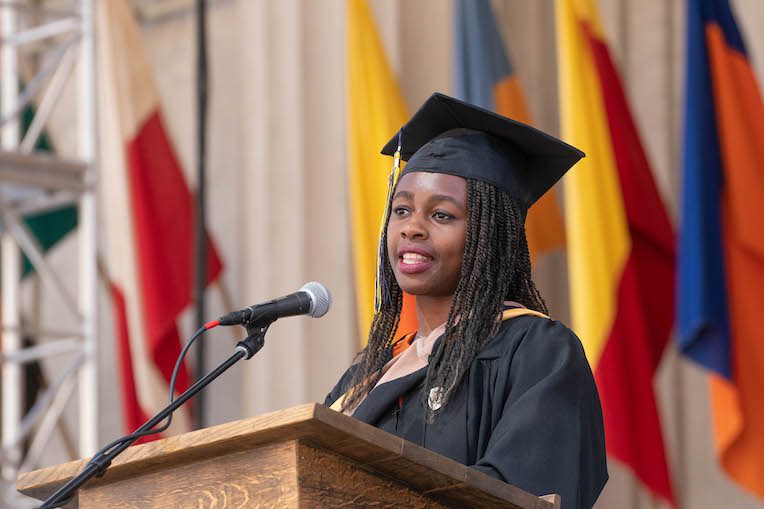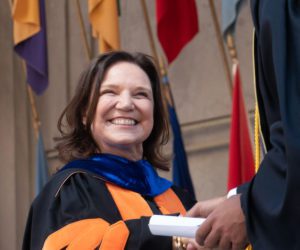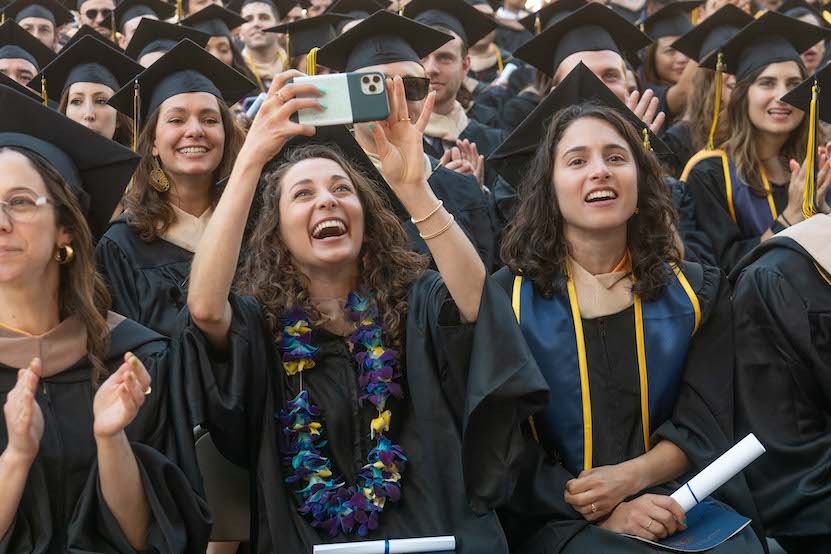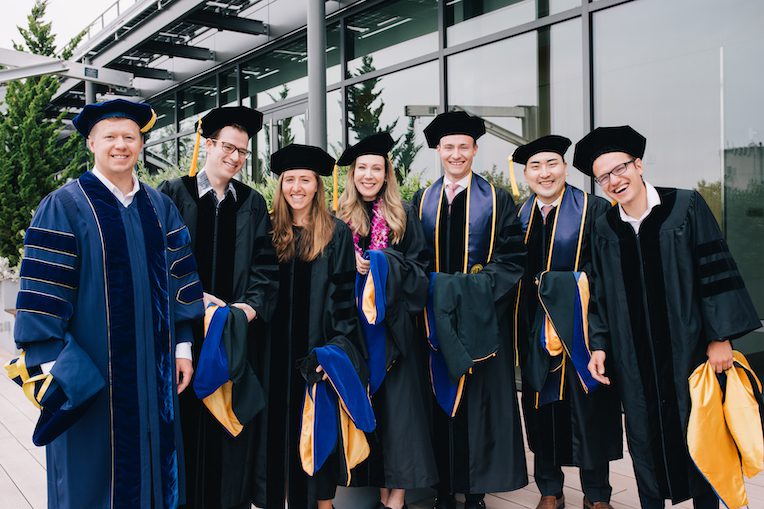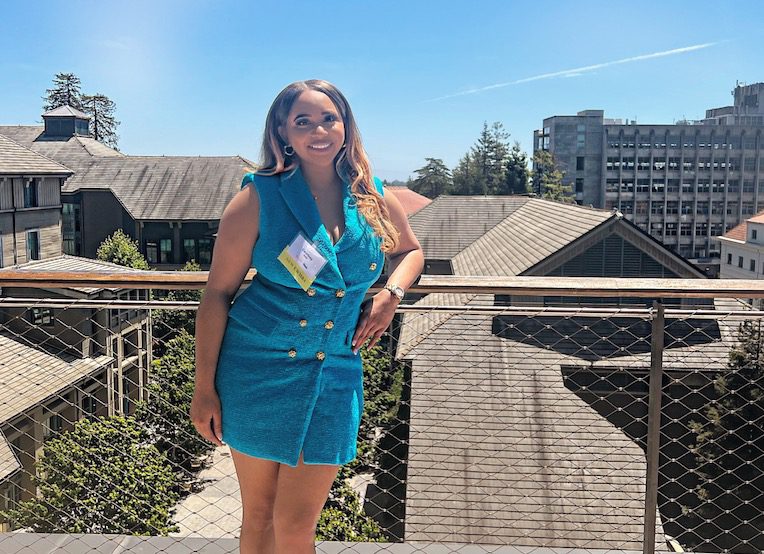
Haas Voices is a series that highlights the lived experiences of members of the Berkeley Haas community.
Determined to break into TV news, Courtney Smith, EWMBA 25, took a leap of faith in her 20s that led to a career in broadcast journalism.
Now a local news producer for KTVU Fox 2, Smith aims to push the boundaries of entertainment media, opening it to new technologies and most importantly to her, more diverse voices. Before coming to Haas, Smith was a member of the Forté MBALaunch 2021 cohort, a development program that provides a road map for applying to business school. Here’s our recent interview with Smith.
How did you get your start in TV news?
I was still a bit fresh out of college living in Houston, and applying for jobs but not really getting the response that I was looking for. One day I got dressed up, as if I had an interview, and printed out a bunch of resumes. I just said, ‘You know what? I’m going to take a leap of faith.’
I went to one of the local television stations, where I planned to drop off a resume. I met with the security guard in the lobby to drop off a resume and she told me I could probably chat with the news director. So I picked up the lobby phone and dialed. When someone answered, I got so nervous that I hung up! But then I called back, and told him I was interested in a position. He asked me curiously, “Are you in the lobby?” I laughed and said yes, and he told me to stay right there, he would come get me. It was the moment that opened doors for me.
What brought you to the Bay Area?
Around 2018, a news director from KRON-TV reached out. I initially turned down the opportunity because my mother had just had surgery and was recovering after battling kidney cancer. I thought awhile about the decision, prayed about it, and reached back out to the news director and said if the position was still available that I would love to take it. It was an opportunity that I just couldn’t refuse: to move to the Bay Area and work in this market.
Why did you decide to apply to Haas?
When I first visited the campus it felt like home, and I knew right away that this was the place that would change me for the better. I wanted to pursue an MBA to develop my leadership skills and hone my business skills. I had given it some thought before the pandemic, but once 2020 rolled around, I knew that it was time. With the racial reckoning that our country was going through, and the host of issues that the COVID-19 pandemic shed a light on, I felt a deep desire as a Black woman in media to do something that would have a lasting impact.
You are developing and assigning multiple story ideas daily with a team of 10 reporters, writers, and photographers. How are you juggling your job with your MBA program?
The life of a journalist and an MBA student is hard-work. I do keep a beautifully color-coordinated Google calendar that I swear by with alerts attached to almost every event. Notion and Goodnotes on my iPad are great, too. I also keep a written to-do list, where I jot down my top three priorities for the day, to-dos, and my wild ideas. I also write down things that went great in my day, followed by things that could have gone better. As a journalist, some of us work before most people are awake, or late into the night while others are enjoying dinner, or putting kids to bed. It’s a daily grind filled with deadlines you can’t miss. I have so much respect for the people working in my industry, as most people have no idea the sacrifices we make. I also think it’s so important in whatever your role is to give yourself grace. Life will always have its obstacle course days, so it’s important to be kind to yourself, especially as an MBA student so you can appreciate this journey and thrive.
Life will always have its obstacle course days, so it’s important to be kind to yourself, especially as an MBA student so you can appreciate this journey and thrive.
What is the most impactful or memorable story you have produced?
I was producing a live newscast in Beaumont, Texas, during the worst of Hurricane Harvey. I grew up in Houston so I’m very used to hurricanes, but this hurricane was devastating to so many smaller communities. I’ll never forget the voices of viewers on air that night. I worked to have local public figures speak to my news team on-air to get critical messages out, positioned reporters in hot spots where homes and buildings were hit the hardest, and dispelled myths that were beginning to surface throughout the evening in an effort to calm the community. Even when I wasn’t producing, I took the time to answer viewer phone calls. So many were in need of being rescued from their homes due to severe flooding. I did my very best that night to connect local rescue teams with those who needed immediate help.
What are your goals after graduating?
I have many goals, but one of them is to work for a TV network or streaming service as a CEO, president, or vice president. I also have a passion for entrepreneurship. I feel like the sky’s the limit and I’m open to all that life brings.
I would love to create more lanes of opportunity for diverse voices in TV & film. While there has been progress, there’s still a long way to go. I just want to be a strong voice and to make it easier for others to enter this industry, because there aren’t many women and men in positions of leadership who look like me. Increasing diverse leadership in any workforce improves it overall.
You’re clearly all about persistence, having started your career as an intern at Radio One and KPRC-TV in Houston before rising to producer in a top market. Where do you think that comes from?
I think it comes from being comfortable hearing the word no. If I have a goal that I just can’t stop working on, it’s one of those things that keeps me up at night. I’m going to keep trying and trying until I get a yes. I‘m open to criticism and I’m okay with putting myself out there as you can probably see from my crazy idea to walk into a building dressed as if I had an interview. I was truly walking by faith that day and said if it goes well then that’s great, and if it doesn’t, it doesn’t.
If I have a goal that I just can’t stop working on, it’s one of those things that keeps me up at night. I’m going to keep trying and trying until I get a yes.
What are some impactful classes so far at Berkeley Haas?
Data and Decisions with Professor Frederico Finan and Marketing with Professor Zsolt Katona are truly amazing classes that gave me ah-ha moments, confirming answers to questions I’ve had for many years. From day one in Data and Decisions I became a better journalist just by learning how to identify poor quality data that many people see on a daily basis in morning headlines. In my marketing course I enjoy learning about how customers value brands/products and services along with the amount of storytelling that goes on in marketing. Leading People and Microeconomics classes are also wonderful. Leading People with Professor Ambar La Forgia takes you on a journey of what it is like to be a corporate leader and how to handle the challenges that come along the way. I learned so much about myself from this course and the type of leader I want to be. In Professor Ricardo Perez-Truglia’s microeconomics course I gained a better understanding of why companies made certain business decisions and how to think like an economist.
What are you most passionate about in your industry?
I’m so inspired by our youth today, and I just want to be in a position to support them so they can have an outlet to showcase their creativity and grow into leaders in this space. It’s work that I’m very passionate about doing.
I’m also very excited about where media and entertainment and this whole new world of streaming is going. I just want to be a part of it, and become a leader in that industry, so that I can continue to develop storytelling for diverse voices and open more doors of opportunity for others, like how others did for me.
